Essential terms and concepts in Greek philosophy and their thinkers
Greek philosophy offers a treasure trove of concepts and ideas that have profoundly influenced the intellectual traditions of the Western world. Many of these terms encapsulate complex philosophical systems, debates, and insights, often tied to specific thinkers or schools. I thought, it would be useful to have a reference guide to some of the essential terms and concepts in Greek philosophy and the philosophers associated with them. This list is by no means exhaustive but aims to provide a starting point for exploring classical Greek thought.
Adiaphora
In classical ¢Greek philosophy](/weekend_stories/told/2025/2025-01-03-greek_philosophy/), adiaphora (ἀδιάφορα) refers to things that are “indifferent” or “neutral” in moral and philosophical terms. These are matters or actions considered neither inherently good nor bad, and thus, they do not directly contribute to or detract from the attainment of a virtuous life or eudaimonia (human flourishing).
The concept of adiaphora was developed primarily in the context of Hellenistic philosophies, particularly by the Stoics, but it also appears in the works of earlier thinkers.
Key philosophers:
- Zeno of Citium: The founder of Stoicism, who laid the groundwork for the Stoic ethical framework, including the classification of adiaphora.
- Epictetus: A later Stoic philosopher who emphasized the distinction between what is within our control (virtue) and what is not (adiaphora).
- Sextus Empiricus: A prominent Skeptic who discussed the role of adiaphora in achieving ataraxia through suspension of judgment.
Stoicism
The Stoics elaborated the idea of adiaphora extensively within their ethical framework. According to Stoic doctrine, the ultimate goal of life is to live in accordance with nature, which entails living a life of virtue. Virtue alone is considered the highest good (summum bonum), while vice is the only true evil. Everything else—such as health, wealth, pleasure, pain, and external possessions—is categorized as adiaphora because these things are neither good nor bad in themselves.
However, the Stoics introduced a further subdivision within adiaphora:
- Preferred indifferents (προηγμένα): These are things that are naturally desirable, such as health, wealth, and education. While not constituting true goods, they are to be “preferred” as they align with nature and facilitate virtuous living.
- Dispreferred indifferents (ἀποπροηγμένα): These are things naturally undesirable, such as illness, poverty, or pain, but they do not prevent one from living a virtuous life.
This distinction underscores the Stoic emphasis on inner virtue as the only determinant of happiness, with external circumstances relegated to a secondary, neutral status.
Skepticism
The Skeptics, particularly those in the Pyrrhonian tradition, also employed the concept of adiaphora but in a different manner. For the Skeptics, adiaphora reflects their suspension of judgment (epoché). Since Skeptics refrain from making definitive claims about what is good or bad, they treat all external matters as indifferent, thereby achieving a state of mental tranquility (ataraxia).
Epicureanism
While the Epicureans did not use the term adiaphora as systematically as the Stoics or Skeptics, they also implicitly addressed the idea of indifference. Epicurus distinguished between natural and necessary desires, natural but unnecessary desires, and vain desires. The latter category, such as excessive wealth or fame, could be seen as parallel to adiaphora, as these things do not contribute to true happiness.
Historical development and influence
The notion of adiaphora gained further significance in early Christian thought, particularly in theological and ethical discussions. Christian writers like the self-proclaimed “apostle” Paul adapted the term to denote matters that are morally neutral and do not affect one’s salvation, such as dietary choices or observing specific holy days (e.g., Romans 14). Later, during the Reformation, the concept was revived in debates over adiaphoristic controversies, concerning which church practices were essential or indifferent to faith.
Agathon
Agathon (ἀγαθόν) refers to “the good” in classical Greek philosophy. It represents the ultimate ideal or purpose of human life and action, embodying the highest value and serving as a central focus in ethics, metaphysics, and theology.
Key philosophers:
- PlatoPlato: Developed the concept of the Form of the Good as the ultimate reality and source of all knowledge.
- Aristotle: Interpreted agathon as the practical and achievable goal of human life, grounded in virtue and reason.
- Zeno of Citium: Stoic founder who emphasized virtue as the sole intrinsic good.
- Epicurus: Reinterpreted agathon in terms of hedonistic tranquility.
- Plotinus: Identified agathon with the One, the source of all existence in Neoplatonic thought.
Plato
In Platonic philosophy, agathon is a cornerstone of his metaphysical system. Plato describes the Form of the Good (to agathon) as the highest and most transcendent of all Forms, the source of truth, beauty, and being. In the Republic, Socrates compares the Good to the sun, which illuminates and enables knowledge and existence. The Form of the Good is what gives intelligibility to all other Forms and represents the ultimate goal of philosophical inquiry and virtuous living.
Plato’s idea of agathon is inherently abstract and absolute, emphasizing that the Good is beyond direct comprehension but is the source of all reality and knowledge.
Aristotle
Aristotle approaches agathon differently, grounding it in practical and teleological contexts. In the Nicomachean Ethics, Aristotle identifies the highest good with eudaimonia (flourishing or happiness), which is achieved through virtuous activity in accordance with reason. For Aristotle, agathon is not an abstract Form but the end (telos) that all human actions aim to achieve.
Aristotle’s ethics and metaphysics emphasize a more practical understanding of the Good, closely tied to human nature and the function (ergon) of a rational being.
Stoicism
The Stoics regard agathon as synonymous with virtue, which they see as the only true good. External factors such as wealth, health, and pleasure are categorized as “indifferents” (adiaphora) because they do not contribute to or detract from virtue. For the Stoics, living in harmony with nature and reason is the path to achieving the Good.
Epicureanism
Epicureans redefine agathon in terms of pleasure (hedone), specifically the absence of pain and disturbance. For Epicurus, the Good is a life of tranquility and self-sufficiency, achieved by satisfying natural and necessary desires while avoiding unnecessary or harmful ones.
Neoplatonism
In Neoplatonism, agathon is equated with the One, the ultimate principle of reality from which all existence emanates. Plotinus describes the Good as the ineffable source of unity and being, transcending all categories of thought and existence. The journey toward agathon involves the soul’s ascent through contemplation and self-purification.
Historical development and influence
The concept of agathon has profoundly influenced Western philosophy, shaping ethical, metaphysical, and theological discussions. It remains central to debates about the nature of value, purpose, and the ultimate aims of human life.
Aitia
Aitia (αἰτία) translates as “cause” or “reason” and is a foundational concept in Greek philosophy, particularly in discussions of metaphysics, epistemology, and natural science. It refers to the principles or explanations that account for why things are the way they are.
Key philosophers:
- Aristotle: His four causes remain a cornerstone in understanding causation.
- Plato: His metaphysical interpretation of ultimate and secondary causes.
- Pre-Socratics: Their exploration of natural principles as explanatory causes.
Aristotle
Aristotle’s treatment of aitia is perhaps the most systematic and influential. In his work Physics and Metaphysics, Aristotle identifies four types of causes that provide a comprehensive framework for understanding change and existence:
- Material Cause (ὑλική αἰτία): The substance or matter out of which something is made. For example, the marble of a statue.
- Formal Cause (εἶδος): The form or essence that defines what a thing is. For the statue, it is the design or pattern it follows.
- Efficient Cause (κινοῦν): The agent or process that brings something into being. For the statue, it is the sculptor’s work.
- Final Cause (τέλος): The purpose or end for which something exists. For the statue, it could be to honor a deity or decorate a space.
This framework has profoundly influenced subsequent philosophical and scientific inquiry by emphasizing a holistic understanding of causation.
Plato
While Plato does not systematize causes as Aristotle does, he discusses causation extensively, especially in the Timaeus and the Phaedo. For Plato, the ultimate aitia is the Form of the Good, which is the source of order and purpose in the cosmos. Secondary causes, such as the Demiurge in the Timaeus, function as intermediaries that shape the material world according to the patterns of the Forms.
Pre-Socratic Thought
The concept of aitia can be traced back to early Greek thinkers who sought natural explanations for the cosmos. For example:
- Thales attributed causes to natural elements like water.
- Anaximander proposed the apeiron (the infinite) as the origin and principle of all things.
- Heraclitus emphasized the role of change and logos as fundamental causes.
Stoicism
In Stoic philosophy, aitia is closely tied to the concept of logos, the rational principle governing the universe. The Stoics view causation as deterministic, where every event has a cause rooted in the rational order of nature.
Akatalepsia
Akatalepsia (ἀκαταληψία) translates to “incomprehensibility” or “incapability of being grasped”. It is a concept central to Skeptic philosophy, particularly in its Pyrrhonian and Academic forms, and it signifies the belief that human beings cannot attain certain knowledge about the nature of things.
Key philosophers:
- Sextus Empiricus: A prominent Pyrrhonian Skeptic who extensively articulated the role of akatalepsia in achieving tranquility.
- Arcesilaus: An Academic Skeptic who emphasized the impossibility of certain knowledge and promoted probabilistic reasoning.
- Carneades: Developed the Academic Skeptic stance further, refining the idea of using plausible beliefs as guides for action without claiming certainty.
Pyrrhonian skepticism
In Pyrrhonian skepticism, akatalepsia represents the acknowledgment that absolute certainty is unattainable. This view leads Skeptics to suspend judgment (epoché) on all matters, avoiding assertions about what is true or false. According to Sextus Empiricus, by maintaining a stance of akatalepsia, Skeptics achieve mental tranquility (ataraxia), as they are no longer disturbed by the search for definitive answers or the fear of being wrong.
Academic skepticism
The concept of akatalepsia was also a cornerstone of the Academic Skeptics, particularly during the era of Arcesilaus and Carneades. They argued that since nothing can be known with absolute certainty, the wise person should rely on probabilities rather than definitive claims. This probabilistic approach allowed them to navigate practical life while maintaining intellectual humility.
Contrast with Stoicism
The Stoics directly opposed the idea of akatalepsia. They argued that some perceptions, which they called kataleptic impressions (phantasiai katalēptikai), are self-evident and bear the mark of truth. For the Stoics, such impressions serve as the foundation for certain knowledge. The dispute between the Stoics and Skeptics over the possibility of katalepsis (certain knowledge) was a significant philosophical debate in antiquity.
Historical development and influence
The concept of akatalepsia influenced later philosophical and theological traditions, including debates about the limits of human reason in early Christian and medieval thought. Its emphasis on intellectual humility and the suspension of judgment continues to resonate in contemporary discussions about epistemology and the nature of belief.
Aklineis
Aklineis (ἀκλινής) refers to a state of being “unwavering” or “unshaken”. It is a term used to describe a philosophical disposition or mental attitude characterized by steadfastness, stability, and resistance to external disturbances or internal doubt. ** **Key philosophers:
- Epictetus: Emphasized unwavering control over one’s internal state, maintaining a resolute adherence to Stoic principles.
- Sextus Empiricus: His works illustrate the Skeptic’s commitment to mental stability through non-attachment to absolute truths.
Stoicism
The term aligns closely with Stoic ideals of resilience and inner tranquility. For the Stoics, aklineis reflects the sage’s unshaken adherence to reason and virtue, regardless of external circumstances. This steadfastness is seen as essential for achieving ataraxia (peace of mind) and living in accordance with nature. A Stoic sage remains aklineis in the face of adversity, guided by the conviction that external events are beyond one’s control and thus indifferent (adiaphora).
Skepticism
In Pyrrhonian skepticism, aklineis is associated with the ideal mental state resulting from suspension of judgment (epoché). By avoiding dogmatic commitments, the Skeptic achieves freedom from doubt and disturbance, embodying an unwavering equanimity in the face of competing claims about truth.
Epicureanism
Although the term is not explicitly used by the Epicureans, the concept of mental steadfastness resonates with their ideal of a tranquil mind (ataraxia). For Epicurus, aklineis would be the unwavering focus on avoiding pain and fear, achieved through philosophical reflection and the cultivation of simple pleasures.
Akradantous
Akradantous (ἀκραδάντους) translates to “unshakable” or “unwavering”. It describes a state of steadfastness and resolute firmness, particularly in one’s beliefs, convictions, or character. The term is often associated with philosophical ideals of inner strength and immutability in the face of external challenges or internal doubts.
Key philosophers:
- Epictetus: His teachings often emphasize the importance of remaining resolute and unshaken in the face of adversity by focusing only on what is within one’s control.
- Sextus Empiricus: Advocated for mental steadiness through the suspension of judgment, allowing for a life free of turmoil.
- Epicurus: Though not directly using the term, his advocacy for a tranquil and fearless life resonates with the concept of unshakable resolve.
Stoicism
In Stoic philosophy, akradantous aligns with the ideal of the sage, who remains unshaken by external circumstances or emotional turbulence. For the Stoics, an unshakable character is achieved through the cultivation of virtue and rationality, enabling the individual to maintain equanimity regardless of external events. This steadfastness is essential for achieving ataraxia (tranquility) and living in harmony with nature.
Skepticism
While Skeptics emphasize the suspension of judgment (epoché), akradantous can be seen as a byproduct of their philosophy. By refusing to commit to absolute truths, Skeptics achieve a kind of unwavering mental state, free from the disturbances caused by dogmatic beliefs. Sextus Empiricus highlights this stability as a pathway to ataraxia, as it eliminates the inner conflicts associated with certainty and doubt.
Epicureanism
Although not explicitly using the term akradantous, Epicurean philosophy values a steady and unshaken mind as a component of a tranquil life. For Epicurus, freedom from fear and disturbance (ataraxia) is achieved by focusing on simple pleasures and avoiding unnecessary desires or fears, particularly those rooted in superstition or fear of death.
Historical development and influence
The concept of akradantous reflects enduring ideals of resilience and steadfastness, influencing subsequent philosophical and ethical systems. It remains a central theme in discussions of character, virtue, and the philosophical pursuit of inner stability.
Aletheia
Aletheia (ἀλήθεια) translates to “truth” or “unconcealment” in classical Greek. It represents a central concept in Greek philosophy, emphasizing the nature of reality as it is revealed and understood. Unlike the modern notion of truth as correspondence, aletheia often carries a sense of disclosure or bringing forth what is hidden.
Key philosophers:
- Heraclitus: Emphasized truth as the understanding of the dynamic and unified nature of the cosmos.
- Parmenides: Distinguished aletheia as the path of reason and being, opposed to the deceptive realm of opinion.
- Plato: Connected aletheia to the intellectual apprehension of the eternal Forms.
- Aristotle: Defined truth as correspondence, but also explored its role in uncovering reality’s principles.
- Stoics: Saw truth as living in accordance with nature and reason, accessible through clear perceptions.
Pre-Socratic philosophy
The concept of aletheia is prominent in early Greek thought. Heraclitus, for instance, viewed truth as the understanding of the underlying unity and change of the cosmos, revealed through the logos. Parmenides also explored aletheia in his poem, contrasting it with “opinion” (doxa), which he considered deceptive and tied to sensory perception. For Parmenides, aletheia reflects the eternal and unchanging nature of being.
Plato
In Platonic philosophy, aletheia is tied to the realm of the Forms. For Plato, truth is apprehended through intellectual insight rather than sensory experience. The allegory of the cave in the Republic illustrates this: aletheia is the light of the sun that illuminates the true reality outside the cave, contrasted with the shadows of illusion. Truth, in this sense, is a process of uncovering and ascending toward knowledge of the Good.
Aristotle
Aristotle adopted a more practical and systematic approach to aletheia. For him, truth is the correspondence between thought and reality: “To say of what is that it is, and of what is not that it is not, is true”. While this definition aligns more closely with modern notions of truth, Aristotle’s exploration of aletheia also extends into metaphysics, where the pursuit of knowledge involves uncovering the principles and causes of things.
Stoicism
The Stoics regarded aletheia as an alignment with reason and nature. Truth was accessible through kataleptic impressions (“clear and distinct perceptions”) that reliably correspond to reality. Living according to aletheia meant aligning one’s life with the rational order of the cosmos.
Heidegger (modern engagement):
While not part of classical Greek thought, Martin Heidegger’s reinterpretation of aletheia as “unconcealment” brings renewed focus to its original Greek sense. Heidegger contrasts aletheia with the modern emphasis on truth as mere accuracy, emphasizing instead the process by which beings are revealed in their fullness.
Historical development and influence
The concept of aletheia has profoundly shaped Western thought, influencing discussions about the nature of reality, knowledge, and the human condition. Its emphasis on uncovering and revealing resonates in philosophical, theological, and scientific traditions.
Amatha
Amatha (ἄμαθα) translates to “ignorance” or “lack of learning” in classical Greek. It denotes not merely the absence of knowledge but a more profound inability or unwillingness to engage with truth, reason, or ethical understanding. In philosophical discourse, amatha is often contrasted with wisdom (sophia) or learning (paideia).
Key philosophers:
- Heraclitus: Critiqued ignorance as blindness to the logos and the dynamic nature of the cosmos.
- Plato: Explored amatha as a fundamental obstacle to justice, knowledge, and the good life, depicting it vividly in the allegory of the cave.
- Aristotle: Addressed ignorance in the context of moral error and the necessity of practical wisdom.
- Epictetus: Tied ignorance to irrationality and emphasized the importance of philosophical education in overcoming it.
Pre-Socratic philosophy
In early Greek thought, amatha was often associated with the failure to understand the natural order or the principles governing the cosmos. Heraclitus, for example, criticized those who failed to grasp the logos, the underlying rational principle of the universe, as living in a state of amatha. He saw ignorance as a barrier to living in harmony with nature.
Plato
Plato frequently addresses amatha in his dialogues, contrasting it with the pursuit of wisdom and virtue. In works such as the Republic, ignorance is depicted as the root of injustice and disorder, both in the soul and in society. The allegory of the cave vividly illustrates amatha as a state of being trapped in illusions, mistaking shadows for reality. For Plato, overcoming amatha requires education (paideia) and the ascent toward knowledge of the Forms, culminating in the understanding of the Good (to agathon).
Aristotle
While Aristotle does not use the term amatha as extensively as Plato, he addresses the concept in his discussions of intellectual and moral virtues. Ignorance, for Aristotle, can be either culpable or non-culpable, depending on whether it results from a lack of effort or unavoidable circumstances. In the Nicomachean Ethics, he links ignorance to moral error, emphasizing the importance of practical wisdom (phronesis) in making virtuous decisions.
Stoicism
The Stoics view amatha as a failure to live in accordance with reason and nature. For Stoic philosophers such as Epictetus and Marcus Aurelius, ignorance is the source of irrational desires, fears, and emotional disturbances. Overcoming amatha involves cultivating an understanding of the natural order and aligning one’s actions with the rational principles of the cosmos.
Skepticism
While Skeptics do not explicitly use the term amatha, their philosophy implicitly acknowledges it by highlighting the limits of human knowledge. By practicing suspension of judgment (epoché), Skeptics aim to avoid the dogmatism that they associate with ignorance, thus achieving a state of tranquility (ataraxia).
Historical development and influence
The concept of amatha has remained a cornerstone in philosophical discussions about the nature of knowledge, ethical responsibility, and human flourishing. Its role as a counterpoint to wisdom continues to inform debates about education, morality, and the human condition.
Anamnesis
Anamnesis (ἀνάμνησις) translates to “recollection” or “remembrance” in classical Greek philosophy. It refers to the process of recalling knowledge or truths that are innate to the soul but forgotten due to its embodied existence. This concept is most famously associated with Plato, who uses it to explain the acquisition of knowledge as a process of remembering rather than learning afresh.
Key philosophers:
- Plato: Developed the concept of anamnesis as the foundation of his theory of knowledge and the soul’s immortality.
- Plotinus: Integrated anamnesis into Neoplatonic mysticism, emphasizing spiritual ascent and unity with the One.
- Aristotle: While critical of Platonic anamnesis, he contributed to discussions of memory and learning as natural processes tied to sensory experience.
Plato
In Platonic philosophy, anamnesis is central to his epistemology and metaphysics, particularly as expressed in dialogues such as the Meno and Phaedo. Plato posits that the soul is immortal and has encountered the Forms—eternal, unchanging truths—prior to its incarnation in the physical body. According to this view, learning is not the acquisition of new information but the recollection of these pre-existing truths. For instance, in the Meno, Socrates demonstrates anamnesis by guiding a slave boy to “remember” geometric principles he had not been explicitly taught, thereby illustrating the soul’s inherent knowledge.
Aristotle
Aristotle diverges significantly from Plato on the concept of anamnesis. While he acknowledges the role of memory and recollection in human cognition, he grounds these processes in empirical experience rather than innate knowledge. For Aristotle, knowledge arises from sensory experience and intellectual abstraction, not from the recollection of pre-existing truths.
Stoicism
Though Stoicism does not explicitly adopt anamnesis, its focus on aligning with the rational order of the cosmos resonates with the Platonic idea that truth is not created but discovered. Stoics emphasize the importance of reason as a tool for recognizing universal truths inherent in nature and the self.
Neoplatonism
Plotinus and later Neoplatonists expand on Plato’s idea of anamnesis. For them, recollection becomes a spiritual process of returning to the One, the ultimate source of all being. This ascent involves purifying the soul and stripping away the distractions of the material world to remember its divine origin and unity with the One.
Historical development and influence
The idea of anamnesis profoundly influenced later philosophical and theological traditions. Early Christian thinkers such as Augustine adapted the concept to describe the soul’s longing for God and the recovery of divine truths through introspection and grace. The theme of recollection continues to inspire modern philosophical inquiries into the nature of knowledge, memory, and the human condition.
Anepikrita
Anepikrita (ἀνεπίκριτα) translates to “unresolved” or “undecided” in classical Greek. It signifies questions or matters that remain open, lacking definitive answers or conclusions. The term is often used in philosophical discussions to describe states of intellectual uncertainty or issues that resist final judgment.
Key philosophers:
- Sextus Empiricus: Emphasized anepikrita as central to Skeptic philosophy, highlighting the benefits of suspending judgment.
- Arcesilaus: Advocated for the Academic Skeptic approach of withholding assent on unresolved issues.
- Carneades: Developed the idea of relying on probabilities while acknowledging the limits of certainty.
- Chrysippus: Countered the concept of anepikrita by defending the Stoic claim to certain knowledge through reason and clear impressions.
Skepticism
In the Pyrrhonian Skeptic tradition, anepikrita captures the essence of their epistemological stance. Skeptics maintain that many questions about the nature of reality are inherently undecidable due to the equal weight of opposing arguments. By suspending judgment (epoché), Skeptics accept the unresolved nature of these issues, leading to a state of mental tranquility (ataraxia). Sextus Empiricus, a key figure in Skepticism, frequently emphasizes the value of acknowledging anepikrita as part of the philosophical journey.
Academic skepticism
The Academic Skeptics, particularly during the time of Arcesilaus and Carneades, also engaged with anepikrita. They argued that since certainty is unattainable, it is rational to withhold assent on undecidable issues. Instead, they advocated for relying on probabilities to guide practical action, while still recognizing the unresolved nature of ultimate truths.
Stoicism
While the Stoics opposed the Skeptical embrace of anepikrita, they addressed the concept indirectly in their defense of kataleptic impressions (“clear and distinct perceptions”). For the Stoics, these impressions serve as the basis for certain knowledge, resolving questions that Skeptics might deem anepikrita. The Stoics argued that reason enables humans to achieve clarity and certainty, countering the unresolved stance of their Skeptical counterparts.
Neoplatonism
In Neoplatonism, unresolved questions (anepikrita) are seen as part of the soul’s ascent toward higher knowledge. Plotinus acknowledges that some matters may remain undecided at lower levels of understanding, but through contemplation and spiritual purification, the soul can transcend intellectual uncertainty and approach unity with the One, where all apparent contradictions dissolve.
Historical development and influence
The idea of anepikrita has had a lasting impact on philosophical discussions about doubt, inquiry, and the limits of human knowledge. It continues to inform contemporary debates in epistemology, particularly in contexts where certainty is unattainable, and open-ended exploration is valued.
Aphasia
Aphasia (ἀφασία) translates to “speechlessness” or “inability to speak” in classical Greek. In philosophical contexts, it denotes a deliberate silence or refusal to make definitive assertions about the nature of reality. The term is closely associated with the practice of suspending judgment (epoché) in Skeptic philosophy, reflecting a state of mental tranquility and freedom from dogmatic belief.
Key philosophers:
- Sextus Empiricus: A leading advocate of aphasia as a means to achieve tranquility and avoid dogmatic errors.
- Arcesilaus: While not fully endorsing aphasia, he emphasized the limits of certainty in Academic skepticism.
- Chrysippus: A Stoic critic of aphasia, defending the possibility of clear and rational knowledge.
Pyrrhonian skepticism
In Pyrrhonian skepticism, aphasia is a cornerstone of the philosophical method. By refraining from asserting anything as true or false, Skeptics maintain a neutral stance toward competing claims. Sextus Empiricus describes aphasia as the natural outcome of the Skeptic’s suspension of judgment. This silence is not ignorance but a conscious strategy to avoid the disturbances caused by dogmatic assertions, thereby achieving mental peace (ataraxia).
Academic skepticism
While the Academic Skeptics also emphasized doubt and uncertainty, they did not advocate for complete aphasia. Philosophers like Arcesilaus and Carneades used arguments to challenge dogmatic positions, but they engaged in probabilistic reasoning to guide practical decisions. Thus, aphasia in its strictest sense was more characteristic of Pyrrhonian skepticism.
Stoicism
Stoic philosophy opposed aphasia, viewing it as an abdication of reason and the pursuit of truth. The Stoics argued that certain knowledge could be achieved through kataleptic impressions (“clear and distinct perceptions”). For them, the refusal to assert truths undermined the rational capacity of humans to align with the natural order.
Historical development and influence
The concept of aphasia influenced later philosophical and theological traditions, particularly in discussions about the limits of human understanding. It remains a significant theme in epistemology, highlighting the tension between doubt, assertion, and the quest for certainty.
Aporia
Aporia (ἀπορία) translates to “perplexity” or “impasse” in classical Greek. It describes a state of puzzlement or uncertainty that arises when one encounters a question or problem for which no clear solution or answer is immediately available. In philosophy, aporia is both a methodological tool and a critical moment in inquiry, often marking the starting point for deeper reflection and understanding.
Key philosophers:
- Socrates: Master of using aporia to challenge assumptions and stimulate philosophical inquiry.
- Plato: Explored aporia as a means to provoke deeper examination of ethical and metaphysical concepts.
- Aristotle: Systematically analyzed aporiai to advance the study of metaphysics and natural philosophy.
- Sextus Empiricus: Highlighted aporia as a central feature of Skeptic practice, leading to tranquility.
Socratic philosophy
In the dialogues of Plato, Socrates frequently employs aporia as a method to expose the inadequacies of his interlocutors’ assumptions. By leading them to a state of perplexity through rigorous questioning, Socrates encourages a recognition of ignorance, which he views as the first step toward genuine knowledge. For example, in the Meno, the dialogue culminates in an aporetic state about the nature of virtue, prompting the exploration of new avenues of thought.
Aristotelian thought
Aristotle uses aporia differently, treating it as a systematic tool for identifying and addressing philosophical problems. In his Metaphysics, Aristotle introduces aporiai (plural of aporia) as difficulties or contradictions that arise when examining fundamental questions, such as the nature of being or the causes of change. Resolving these aporiai is central to advancing philosophical understanding.
Skepticism
For Skeptics, aporia signifies the suspension of judgment (epoché) that results from encountering equally compelling arguments on opposing sides of an issue. Sextus Empiricus frames this state as a pathway to ataraxia (tranquility), as the absence of definitive conclusions frees one from the anxiety of dogmatic commitment.
Stoicism
While Stoic philosophy does not embrace aporia as a method, it acknowledges moments of perplexity in the journey toward wisdom. Stoics emphasize the importance of using reason and virtue to navigate and resolve such impasses, aligning one’s understanding with the natural order of the cosmos.
Historical development and influence
The concept of aporia has remained a vital tool in philosophical and critical inquiry, influencing methodologies in epistemology, ethics, and metaphysics. Its emphasis on questioning and the recognition of uncertainty continues to resonate in contemporary philosophical debates and education.
Arete
Arete (ἀρετή) translates to “excellence” or “virtue” in classical Greek. It signifies the highest quality or fulfillment of purpose that an individual or object can achieve. In philosophical and ethical contexts, arete refers to the cultivation of moral and intellectual virtues, embodying the ideal of living in accordance with one’s highest potential.
Key philosophers:
- Homer: Introduced the concept of arete as excellence in action, particularly in heroic contexts.
- Socrates: Reframed arete as intellectual and moral virtue, rooted in knowledge and the pursuit of the Good.
- Plato: Explored arete as the harmonious development of virtues essential to individual and societal well-being.
- Aristotle: Systematized arete within his ethical framework, emphasizing its role in achieving eudaimonia.
- Zeno of Citium: Emphasized arete as the Stoic ideal of living virtuously in alignment with nature.
Homeric tradition
In early Greek thought, particularly in Homer’s epics, arete is associated with physical prowess, bravery, and honor in battle. It reflects the qualities that define a hero, such as Achilles or Odysseus, in achieving greatness and recognition through their deeds. This understanding of arete emphasizes excellence within a specific context, such as warfare or leadership.
Socratic philosophy
Socrates redefines arete as a moral and intellectual virtue rather than external achievements. In dialogues such as the Meno and Apology, Socrates argues that arete is tied to knowledge and wisdom, as true excellence requires understanding what is good and just. He emphasizes the inseparability of virtue from knowledge, proposing that ignorance is the root of moral failure.
Plato
In Plato’s philosophy, arete encompasses the virtues necessary for achieving the harmonious functioning of the soul and society. In the Republic, the cardinal virtues—wisdom, courage, moderation, and justice—are the expressions of arete. Plato also connects arete to the idea of the Good (to agathon), suggesting that true excellence involves aligning oneself with the ultimate reality of the Forms.
Aristotle
For Aristotle, arete is central to his ethical system as outlined in the Nicomachean Ethics. He defines arete as a habitual disposition to act in accordance with reason and the mean between extremes of excess and deficiency. Moral virtues such as courage, temperance, and justice are examples of arete that lead to eudaimonia (flourishing or happiness). Intellectual virtues, such as wisdom (sophia) and practical reason (phronesis), are also integral to achieving the highest form of human excellence.
Stoicism
In Stoic philosophy, arete is synonymous with living in accordance with nature and reason. The Stoics emphasize that virtue is the only true good and is sufficient for achieving a fulfilling life. For them, arete involves the development of rationality, self-control, and alignment with the cosmic order.
Epicureanism
Although the Epicureans focus on pleasure (hedone) as the highest good, they recognize virtues such as prudence and moderation as instrumental to achieving tranquility and freedom from pain. In this sense, arete serves as a practical guide rather than an intrinsic end.
Historical development and influence
The concept of arete has shaped ethical thought throughout history, influencing not only Greek philosophy but also Roman, medieval, and modern ethical systems. Its emphasis on excellence and virtue continues to inspire discussions about the nature of human potential, character development, and the good life.
Astathmēta
Astathmēta (ἀστάθμητα) translates to “unmeasured”, “unpredictable”, or “unstable” in classical Greek. It describes phenomena or situations that resist precise quantification or control, often evoking a sense of unpredictability or uncertainty. In philosophical contexts, the term is used to reflect the inherent complexity and variability of life, nature, or human affairs.
Key philosophers:
- Heraclitus: Emphasized the flux and instability of existence, highlighting the astathmēta character of the cosmos.
- Plato: Contrasted the instability of the material world with the unchanging stability of the Forms.
- Aristotle: Explored the role of prudence in navigating life’s unpredictability.
- Epictetus: Advocated for inner stability and virtue as responses to the unpredictable nature of external events.
- Sextus Empiricus: Addressed the variability of appearances and the suspension of judgment as a response to astathmēta.
Pre-Socratic philosophy
The concept of astathmēta aligns with the pre-Socratic focus on the flux and instability of the cosmos. Heraclitus, for instance, emphasized the constant change and unpredictability of the universe, encapsulated in his statement that “you cannot step into the same river twice”. This idea underscores the astathmēta nature of existence as a dynamic and ever-shifting reality.
Plato
In Platonic thought, astathmēta is often contrasted with the stability and perfection of the Forms. While the material world is marked by instability and imperfection, the realm of the Forms represents unchanging truth and order. Plato’s philosophy suggests that understanding and transcending the astathmēta aspects of the physical world is essential for attaining knowledge and aligning with the Good.
Aristotle
Aristotle acknowledges the unpredictable nature of certain aspects of life, particularly in his discussions of chance (tyche) and contingency. In the Nicomachean Ethics, he highlights the role of prudence (phronesis) in navigating the astathmēta elements of human life, emphasizing the importance of practical wisdom in making decisions amid uncertainty.
Stoicism
Stoic philosophy embraces the astathmēta of external events as part of the natural order. The Stoics teach that while external circumstances are often unpredictable and beyond human control, individuals can maintain inner stability by focusing on their own rationality and virtue. The concept of astathmēta thus reinforces the Stoic distinction between what is within our control and what is not.
Skepticism
For the Skeptics, astathmēta reflects the limitations of human knowledge and the variability of appearances. The acknowledgment of instability in perceptions and judgments leads to the suspension of belief (epoché), fostering a sense of tranquility (ataraxia) amidst the unpredictable nature of life.
Historical development and influence
The concept of astathmēta has influenced philosophical approaches to uncertainty, change, and the limits of human control. Its emphasis on unpredictability continues to resonate in discussions of ethics, epistemology, and the philosophy of science, where variability and instability remain central challenges to understanding and action.
Ataraxia
Ataraxia (ἀταραξία) translates to “tranquility” or “freedom from disturbance” in classical Greek. It represents a state of inner calm and unshakable peace, achieved through the absence of mental agitation and emotional turmoil. In philosophical contexts, ataraxia is often portrayed as the ultimate goal of life, a state where one is undisturbed by external events or internal anxieties.
Key philosophers:
- Sextus Empiricus: Described ataraxia as the outcome of Skeptic practices, emphasizing suspension of judgment.
- Epicurus: Linked ataraxia to the elimination of fear and the pursuit of simple pleasures.
- Epictetus: Advocated for inner peace through the Stoic discipline of focusing on what is within one’s control.
- Democritus: Highlighted the importance of balance and moderation in achieving a cheerful and tranquil life.
Skepticism
Ataraxia is a central concept in Pyrrhonian skepticism, where it arises as a result of suspending judgment (epoché) about the nature of reality. Sextus Empiricus argues that by refraining from making definitive claims about what is true or false, individuals can avoid the mental disturbances caused by dogmatic beliefs. This suspension leads to a state of ataraxia, characterized by a serene acceptance of life’s uncertainties.
Epicureanism
In Epicurean philosophy, ataraxia is achieved through the absence of fear, particularly the fear of gods and death. Epicurus teaches that by understanding the natural causes of phenomena and recognizing the finality of death, individuals can free themselves from irrational fears. Ataraxia in this context is paired with physical pleasure (aponia), creating a life of balance and contentment.
Stoicism
While the term ataraxia is not central to Stoic philosophy, its essence is reflected in the Stoic ideal of maintaining equanimity regardless of external circumstances. For the Stoics, inner peace is achieved by focusing on what is within one’s control (virtue and rationality) and accepting what is not (external events) as part of the natural order. This perspective aligns with the practical attainment of tranquility in the face of life’s challenges.
Pre-Socratic philosophy
Although not explicitly named, the notion of ataraxia can be seen in the teachings of Democritus, who advocates for moderation and the cultivation of cheerfulness (euthymia). His view emphasizes the importance of inner harmony and freedom from excessive desires or fears as keys to a tranquil life.
Historical development and influence
The concept of ataraxia has profoundly influenced philosophical and ethical thought, shaping approaches to mental well-being and resilience. Its emphasis on inner tranquility continues to inspire modern discussions in philosophy, psychology, and mindfulness practices.
Autarkeia
Autarkeia (αὐτάρκεια), meaning “self-sufficiency” or “independence”, is a central concept in ancient Greek philosophy, particularly in ethical and political contexts. It refers to the state of being complete and self-contained, requiring nothing external to achieve fulfillment or functionality. While initially rooted in political philosophy, autarkeia later became a cornerstone in ethical and individualist thought, particularly in the works of the Cynics, Stoics, and Epicureans.
Key philosophers:
- Aristotle: Explored autarkeia in political contexts, emphasizing the self-sufficiency of the city-state as the foundation of autonomy and stability.
- Diogenes of Sinope: Promoted ethical autarkeia through radical independence from material needs and social conventions.
- Epictetus and Marcus Aurelius: Stoic philosophers who connected autarkeia with inner tranquility and mastery over emotions and desires.
- Epicurus: Advocated for a form of autarkeia achieved through a simple life and the pursuit of intellectual and social pleasures.
Political origins
In early Greek thought, particularly in the works of Aristotle, autarkeia was primarily a political concept. In Politics, Aristotle defines a city-state (πόλις) as achieving autarkeia when it becomes self-sufficient in providing for its citizens’ needs, such as food, security, and governance. This political self-sufficiency was considered the foundation of stability and autonomy.
Ethical development
The ethical dimension of autarkeia evolved with the rise of philosophical schools that emphasized personal virtue and inner peace. Here, autarkeia shifted from a political ideal to an individual one, focusing on the independence of the soul from external circumstances.
Cynicism
The Cynics were among the earliest proponents of ethical autarkeia. Diogenes of Sinope, a key figure in Cynicism, argued that true self-sufficiency could only be achieved by renouncing material possessions and social conventions. For the Cynics, autarkeia was a radical form of independence, requiring complete freedom from external needs and reliance solely on virtue and reason.
Stoicism
In Stoicism, autarkeia became closely associated with inner tranquility and resilience. Stoics like Epictetus and Marcus Aurelius taught that self-sufficiency lies in the alignment of one’s will with nature and the rational order of the cosmos. External goods, such as wealth or status, were considered indifferent (ἀδιάφορα), and true autarkeia was achieved by mastering one’s desires and emotions through reason and virtue.
Epicureanism
Epicurus also emphasized autarkeia but framed it in terms of the simple life and the pursuit of pleasure (defined as the absence of pain and disturbance). For Epicureans, autarkeia was the ability to find contentment with minimal material needs, focusing instead on intellectual pleasures, friendship, and freedom from fear.
Philosophical significance
Autarkeia represents a broader philosophical ideal of independence and self-mastery that transcends its specific interpretations in individual schools. It challenges individuals to evaluate their dependencies, whether material, emotional, or societal, and to cultivate an inner source of stability and fulfillment. In doing so, autarkeia bridges ethical, political, and metaphysical dimensions, influencing not only ancient philosophy but also modern discussions of autonomy and self-reliance.
Demiurge
The Demiurge (Greek: Δημιουργός, “craftsman” or “artisan”) is a central concept in later Greek philosophy, particularly in Plato’s Timaeus and subsequent Neoplatonic and Gnostic thought. The Demiurge is depicted as a divine creator who shapes the material world, imposing order upon chaos by using eternal Forms as archetypes.
Key philosophers:
- Plato: Introduced the concept of the Demiurge in Timaeus, emphasizing its role as a rational and benevolent craftsman shaping the cosmos.
- Philo of Alexandria: Integrated the Platonic Demiurge into Jewish monotheistic frameworks, presenting it as a divine intermediary.
- Plotinus: Reinterpreted the Demiurge as the Nous, a manifestation of the divine intellect in Neoplatonism.
- Valentinian Gnostics: Transformed the Demiurge into a malevolent force in their cosmological dualism.
Plato’s Demiurge
Plato introduces the Demiurge in his dialogue Timaeus as a rational and benevolent craftsman. Unlike the gods of myth, the Platonic Demiurge is not a supreme deity but a metaphysical principle that bridges the perfect realm of Forms with the imperfect material world. The Demiurge works with pre-existing chaotic matter (the Receptacle or Khōra) to create a cosmos that reflects the order and harmony of the Forms.
- Role in creation: The Demiurge uses reason and the Good as guiding principles to fashion the cosmos. For Plato, this creative act explains the presence of order, beauty, and purpose in the universe.
- Non-omnipotence: The Demiurge’s creation is limited by the inherent imperfections of matter, which resists perfect realization of the Forms.
Middle Platonism
During the period of Middle Platonism (1st century BCE to 3rd century CE), the Demiurge was reinterpreted and integrated into broader metaphysical systems. Philosophers such as Philo of Alexandria identified the Demiurge with the God of monotheistic traditions, emphasizing its role as a supreme creator and a bridge between the divine and the material.
- Ethical implications: The Demiurge’s rational and benevolent nature served as a model for human virtue, reflecting the alignment of reason with the Good.
- Cosmological significance: The Demiurge’s creative act provided a framework for understanding the origin and structure of the cosmos.
Gnosticism
In Gnostic traditions, the Demiurge undergoes a dramatic transformation. Far from being a benevolent creator, the Gnostic Demiurge is often portrayed as an ignorant or malevolent being responsible for the flawed material world. Gnostic texts, such as the Apocryphon of John from the Nag Hammadi Library, describe the Demiurge (often named Ialdabaoth) as a deluded entity who falsely claims to be the ultimate god.
- Dualism: Gnosticism posits a stark dualism between the spiritual realm (associated with a transcendent, unknowable God) and the material world (governed by the Demiurge and its Archons).
- Salvation: In Gnostic cosmology, human souls contain divine sparks trapped in the material world. Liberation from the Demiurge’s dominion requires gnosis—esoteric knowledge of one’s true spiritual nature.
Influence on Neoplatonism
In Neoplatonism, particularly the works of Plotinus, the Demiurge is reinterpreted as the Nous (Divine Intellect), the second hypostasis in the hierarchy of being. Plotinus’s Demiurge does not act upon chaotic matter but emanates order from the One, the ultimate source of all existence.
- Unified cosmology: The Neoplatonic Demiurge integrates creation into a hierarchical structure where all levels of reality flow from the One.
- Mystical ascent: Neoplatonism emphasizes the soul’s journey back to the One, transcending the material world shaped by the Demiurge.
Impact on Christianity
The concept of the Demiurge had a profound influence on early Christian theology and debates about creation, divine justice, and the problem of evil:
- Orthodox Christianity: While rejecting Gnostic dualism, early Church Fathers like Origen engaged with Platonic ideas, aligning the Christian God with the rational and benevolent aspects of Plato’s Demiurge.
- Problem of evil: The inherent imperfections in the material world, attributed to the resistance of chaotic matter in Platonic thought, informed theological discussions on the origins of sin and suffering.
Dikaiosyne
Dikaiosyne (δικαιοσύνη) translates to “justice” or “righteousness” in classical Greek. It encompasses fairness, moral integrity, and adherence to ethical principles in both personal conduct and societal structures. The term reflects the ideal of living in harmony with laws, reason, and virtue, playing a central role in Greek ethical and political philosophy.
Key philosophers:
- Homer: Laid the groundwork for justice as social and divine order.
- Plato: Defined justice as harmony within the individual and society, linked to the ultimate Good.
- Aristotle: Distinguished forms of justice and emphasized proportionality in ethical and political contexts.
- Epictetus and Marcus Aurelius: Advocated justice as a Stoic virtue, essential for living in harmony with reason and nature.
- Epicurus: Framed justice as a practical agreement fostering peace and security.
Homeric tradition
In Homeric epics, dikaiosyne is often portrayed in terms of social and divine order. Justice involves fulfilling one’s role within the community and respecting the decrees of the gods. Leaders like Agamemnon and Odysseus are judged based on their ability to uphold justice in their actions and decisions, maintaining balance and order.
Plato
For Plato, dikaiosyne is one of the cardinal virtues, essential for both the individual and the state. In the Republic, Plato defines justice as a condition in which every individual fulfills their appropriate role within society, creating harmony between its classes. On a personal level, justice is the harmonious functioning of the soul, where reason governs spirit and appetite, aligning the individual with the Good (to agathon). Justice, in this sense, is both a moral and metaphysical principle.
Aristotle
Aristotle provides a detailed analysis of dikaiosyne in the Nicomachean Ethics and Politics. He distinguishes between general justice, which encompasses all virtues in relation to others, and particular justice, which pertains to fairness in distribution and rectification. Aristotle’s view emphasizes proportionality—treating equals equally and unequals unequally according to their merits—as the foundation of justice. He also explores legal justice, which aligns human laws with the natural order.
Stoicism
The Stoics regard dikaiosyne as a fundamental virtue, rooted in living according to nature and reason. Justice, for the Stoics, involves recognizing the interconnectedness of humanity and acting in ways that promote the common good. Marcus Aurelius and Epictetus highlight justice as central to a virtuous life, emphasizing fairness, compassion, and duty to others.
Epicureanism
For the Epicureans, dikaiosyne is a social contract established to ensure mutual security and tranquility. Justice is not intrinsic but instrumental, arising from agreements that prevent harm and promote harmonious coexistence. Epicurus ties justice to the absence of fear and conflict, aligning it with the pursuit of a peaceful life.
Historical development and influence
The concept of dikaiosyne has profoundly shaped Western thought, influencing legal, ethical, and political systems. Its emphasis on fairness, order, and the common good continues to inform debates about justice, rights, and moral responsibility in contemporary philosophy and society.
Dogma
Dogma (δόγμα) translates to “opinion”, “belief”, or “teaching” in classical Greek. In its philosophical usage, it refers to doctrines or principles considered authoritative and unchanging, often serving as the foundation for ethical, metaphysical, or epistemological systems. While the term evolved to acquire theological connotations, in ancient philosophy, it had a broader application.
Key philosophers:
- Epictetus: Highlighted dogmata as rational principles guiding Stoic practice.
- Sextus Empiricus: Criticized dogmatism as a barrier to tranquility and philosophical openness.
- Epicurus: Presented clear and actionable dogmata to guide individuals toward a life free of fear and disturbance.
Stoicism
In Stoic philosophy, dogma refers to foundational principles or axioms derived from reason and aligned with nature. These doctrines guide the Stoic way of life, emphasizing the pursuit of virtue as the highest good and the alignment of human action with universal reason (logos). Stoics such as Epictetus and Marcus Aurelius regarded adherence to dogmata as essential for achieving inner peace and living in harmony with the cosmos.
Skepticism
For Skeptics, particularly in the Pyrrhonian tradition, dogma is viewed with suspicion. Sextus Empiricus criticizes the rigid adherence to dogmata, arguing that it leads to dogmatism and mental disturbance. Skeptics advocate for the suspension of judgment (epoché), rejecting fixed beliefs in favor of ongoing inquiry and tranquility (ataraxia).
Epicureanism
In Epicurean philosophy, dogma represents the core teachings of Epicurus, such as the pursuit of pleasure (hedone) and the avoidance of pain as the ultimate goals of life. These doctrines are presented as rational principles that liberate individuals from fear of the gods and death, fostering a life of simplicity and tranquility.
Plato and Aristotle
While Plato and Aristotle do not explicitly use the term dogma in their philosophical systems, their teachings have been interpreted as embodying foundational doctrines. Plato’s theory of Forms and Aristotle’s principles of causation and virtue ethics serve as enduring dogmata in the history of philosophy.
Early Christian thought
In the development of Christian theology, dogma acquires a more specific meaning, referring to authoritative teachings or doctrines of the Church. Early Christian councils, such as the Council of Nicaea, formulated dogmata to establish orthodox beliefs and combat heresy. These creeds and declarations became foundational to Christian faith and practice.
Historical development and influence
The concept of dogma has had a profound impact on the development of philosophical and theological traditions. While in its classical usage, it often referred to guiding principles, its later adoption in religious contexts emphasized immutable truths. The tension between adhering to dogmata and maintaining intellectual openness continues to influence contemporary debates in philosophy, science, and theology.
Episteme
Episteme (ἐπιστήμη) translates to “knowledge” or “understanding” in classical Greek. It represents a systematic, rational, and demonstrable form of knowledge, often contrasted with opinion (doxa). In philosophical contexts, episteme encompasses the pursuit of true knowledge grounded in reason and principles, distinguishing it from mere perception or belief.
Key philosophers:
- Plato: Elevated episteme as knowledge of the eternal and unchanging Forms.
- Aristotle: Defined episteme as demonstrative knowledge derived from first principles, foundational to scientific inquiry.
- Epictetus: Emphasized the Stoic ideal of episteme as knowledge aligned with reason and virtue.
- Sextus Empiricus: Critiqued the possibility of achieving episteme, advocating for suspension of judgment.
- Epicurus: Highlighted the role of episteme in liberating individuals from fear through understanding the natural world.
Plato
For Plato, episteme is central to his theory of knowledge and metaphysics. In dialogues like the Republic and the Theaetetus, Plato contrasts episteme with doxa, emphasizing that true knowledge is concerned with the eternal and unchanging Forms, rather than the transient and imperfect world of sensory experience. The allegory of the cave vividly illustrates this distinction, showing how episteme involves an intellectual ascent from the shadows of illusion to the light of truth.
Aristotle
Aristotle refines the concept of episteme in his works, particularly in the Posterior Analytics. For him, episteme is a form of demonstrative knowledge derived from first principles (archai). These principles are self-evident truths from which other propositions can be logically deduced. Aristotle distinguishes episteme from practical knowledge (phronesis) and productive knowledge (techne), situating it as the foundation of scientific inquiry and theoretical understanding.
Stoicism
In Stoic philosophy, episteme represents the ideal state of knowledge achieved by the sage. The Stoics argue that true knowledge is certain and based on kataleptic impressions (“clear and distinct perceptions”) that align with the rational order of the cosmos. For the Stoics, episteme is intimately tied to living virtuously, as knowledge and virtue are inseparable.
Skepticism
Skeptics, particularly in the Pyrrhonian tradition, challenge the possibility of attaining episteme. Sextus Empiricus argues that because all claims to knowledge are subject to doubt, suspending judgment (epoché) is the most rational response. This suspension leads to mental tranquility (ataraxia), in contrast to the certainty sought by other philosophical schools.
Epicureanism
While the Epicureans focus on practical knowledge that contributes to a life free from fear and disturbance, they also recognize a role for episteme in understanding the natural world. Epicurus emphasizes the importance of studying nature to dispel irrational fears of gods and death, grounding episteme in empirical observation and rational inference.
Historical development and influence
The concept of episteme has profoundly influenced the development of epistemology, science, and philosophy. Its distinctions from belief, practical knowledge, and empirical observation continue to inform debates about the nature and limits of human understanding.
Epoché
Epoché (ἐποχή) translates to “suspension” or “cessation” in classical Greek. In philosophical contexts, it signifies the suspension of judgment about the truth or falsity of propositions. Originating in ancient Skepticism, epoché is a methodological tool used to achieve mental tranquility (ataraxia) by refraining from making definitive assertions about uncertain matters.
Key philosophers and thinkers:
- Sextus Empiricus: Articulated epoché as a means to achieve mental tranquility in Skepticism.
- Arcesilaus and Carneades: Incorporated epoché into Academic skepticism, combining it with probabilistic reasoning.
- Chrysippus: Critiqued epoché from a Stoic perspective, emphasizing the reliability of kataleptic impressions.
- Edmund Husserl: Reinterpreted epoché as a phenomenological method for examining pure consciousness.
Pyrrhonian skepticism
The concept of epoché is central to Pyrrhonian skepticism, as developed by Sextus Empiricus. Skeptics argue that for every argument, an equally persuasive counterargument can be made, leading to a state of isosthenia (balance of opposing views). Faced with this equilibrium, the Skeptic suspends judgment (epoché), neither affirming nor denying any claim. This suspension fosters ataraxia, a state of peace free from the disturbances of dogmatic belief.
Academic skepticism
Although the Academic Skeptics, such as Arcesilaus and Carneades, share similarities with Pyrrhonian skepticism, their approach to epoché differs. Academic Skeptics use suspension of judgment as a provisional stance while engaging in probabilistic reasoning to navigate practical life. For them, epoché serves as a philosophical starting point rather than an ultimate goal.
Stoicism
The Stoics criticize epoché for its rejection of certainty. They argue that kataleptic impressions (clear and undeniable perceptions) provide a basis for certain knowledge, rendering suspension of judgment unnecessary. However, the Stoics recognize the value of careful deliberation and the avoidance of hasty conclusions in maintaining rationality.
Phenomenology
In modern philosophy, epoché is revived by Edmund Husserl in the context of phenomenology. Husserl employs epoché as a methodological suspension of all naturalistic and metaphysical assumptions to focus purely on the contents of consciousness. By bracketing out preconceptions, phenomenologists aim to examine phenomena as they appear, leading to a more precise understanding of subjective experience.
Historical development and influence
The concept of epoché has profoundly shaped the history of philosophy, influencing ancient Skepticism, Stoicism, and modern phenomenology. Its emphasis on withholding judgment continues to resonate in contemporary epistemology, ethics, and methodology, offering insights into the nature of belief, doubt, and inquiry. epoché remains a vital tool for cultivating intellectual openness and critical reflection.
Eudaimonia
Eudaimonia (εὐδαιμονία) translates to “flourishing”, “happiness”, or “the good life” in classical Greek. It represents the highest human good and the ultimate aim of life, encompassing a state of fulfillment and well-being achieved through virtuous living and the realization of one’s potential.
Key philosophers:
- Socrates: Identified virtue and self-examination as the core of eudaimonia.
- Plato: Linked eudaimonia to the realization of justice and alignment with the Good.
- Aristotle: Defined eudaimonia as a life of virtuous activity in accordance with reason.
- Epictetus and Marcus Aurelius: Advocated the Stoic ideal of flourishing through rationality and virtue.
- Epicurus: Emphasized the role of pleasure, tranquility, and the avoidance of pain in achieving happiness.
Socratic philosophy
Socrates redefined happiness as a result of living a virtuous and examined life. In Socratic thought, eudaimonia is intrinsically linked to moral virtue and wisdom, as ignorance leads to moral failure and unhappiness. Socrates emphasized that eudaimonia is not achieved through external possessions but through the cultivation of the soul and ethical reasoning.
Plato
For Plato, eudaimonia is the harmonious alignment of the soul, achieved through justice and the other cardinal virtues: wisdom, courage, and moderation. In the Republic, Plato describes eudaimonia as living in accordance with the Good (to agathon), the highest metaphysical principle. Knowledge of the Good, attained through philosophical inquiry, enables an individual to live a fully realized and virtuous life.
Aristotle
Aristotle’s conception of eudaimonia, as detailed in the Nicomachean Ethics, emphasizes it as the ultimate end (telos) of human life. For Aristotle, eudaimonia is not a transient emotional state but a lifelong activity of virtuous practice in accordance with reason. He distinguishes between intellectual virtues (sophia, theoretical wisdom) and moral virtues (phronesis, practical wisdom), both of which contribute to achieving eudaimonia. External goods, such as health and friendship, are also considered supportive conditions but not determinants of true happiness.
Stoicism
In Stoic philosophy, eudaimonia is synonymous with living in harmony with nature and reason. The Stoics argue that virtue alone is sufficient for achieving eudaimonia, as external factors are beyond one’s control and therefore irrelevant to true flourishing. By focusing on the development of rationality and self-discipline, Stoics maintain tranquility (ataraxia) and resilience in the face of adversity.
Epicureanism
For Epicurus, eudaimonia is closely tied to pleasure (hedone), specifically the absence of pain (aponia) and mental disturbance (ataraxia). Epicurus teaches that by satisfying natural and necessary desires, avoiding vain pursuits, and cultivating friendships, one achieves a state of lasting tranquility and happiness.
Historical development and influence
The concept of eudaimonia has shaped ethical theories throughout history, from ancient virtue ethics to contemporary discussions of well-being and human flourishing. Its emphasis on moral development and purposeful living continues to inform modern philosophical, psychological, and social approaches to happiness and fulfillment.
Eusebeia
Eusebeia (εὐσέβεια) translates to “piety”, “reverence”, or “devotion” in classical Greek. It signifies a deep respect for the divine, a commitment to religious duties, and a harmonious relationship with the gods, society, and moral principles. In philosophical contexts, it reflects the integration of spiritual and ethical dimensions of life.
Key philosophers:
- Socrates: Reframed eusebeia as an ethical and philosophical pursuit beyond mere ritual observance.
- Plato: Linked piety to justice and the philosophical understanding of divine principles.
- Aristotle: Incorporated eusebeia into his framework of justice and moral virtue.
- Epictetus and Marcus Aurelius: Advocated a Stoic interpretation of piety as rational reverence for the divine order.
Homeric tradition
In the Homeric epics, eusebeia is portrayed as reverence for the gods and adherence to rituals and customs. Characters demonstrate eusebeia through sacrifices, prayers, and respect for divine authority, which ensures favor and avoids divine wrath. Piety is closely tied to maintaining social and cosmic order.
Socratic philosophy
Socrates challenges conventional notions of eusebeia in dialogues like the Euthyphro. He seeks a deeper understanding of piety beyond ritualistic observance, questioning whether acts are pious because the gods approve them or if the gods approve them because they are inherently pious. This inquiry shifts eusebeia toward an ethical and philosophical examination of justice, morality, and the divine.
Plato
Plato extends the discussion of eusebeia as part of a just and virtuous life. In his works, piety is linked to the broader concept of justice (dikaiosyne) and the alignment of the soul with the Good (to agathon). True eusebeia, for Plato, involves not only fulfilling religious obligations but also understanding and aligning with divine principles through reason and philosophical inquiry.
Aristotle
While Aristotle does not focus extensively on eusebeia, he incorporates it into his ethical framework as part of justice. In the Nicomachean Ethics, he describes piety as a form of distributive justice, giving the gods their due through worship and respect. For Aristotle, eusebeia contributes to the harmonious functioning of society and the individual’s moral development.
Stoicism
For the Stoics, eusebeia is integral to living in accordance with nature and reason. It involves recognizing the divine rational order of the cosmos and aligning one’s actions with it. Piety, in this sense, is not confined to religious rituals but extends to a rational and virtuous life that honors the divine principles governing existence.
Historical development and influence
The concept of eusebeia has influenced religious, ethical, and philosophical traditions throughout history. Its emphasis on reverence, moral integrity, and alignment with higher principles continues to resonate in discussions of spirituality, ethics, and the role of religion in human life.
Hexis
Hexis (ἕξις) translates to “state”, “habit”, or “disposition” in classical Greek. It signifies a stable and enduring quality of character or being, formed through repeated actions or practices. In philosophical contexts, hexis refers to the cultivated traits or conditions that shape an individual’s ethical and intellectual life.
Key philosophers:
- Aristotle: Defined hexis as a stable disposition formed through habituation, central to his virtue ethics.
- Epictetus: Advocated for the Stoic practice of cultivating enduring qualities aligned with reason.
- Epicurus: Emphasized habits that lead to lasting tranquility and freedom from pain.
- Plato: Implicitly acknowledged the role of cultivated dispositions in ethical and intellectual development.
Aristotle
Aristotle provides the most systematic treatment of hexis in his ethical and metaphysical works. In the Nicomachean Ethics, he describes hexis as a disposition that results from habituation (ethos). For Aristotle, virtues are hexeis (plural of hexis), stable dispositions that enable individuals to act in accordance with reason and the “golden mean” between excess and deficiency. For example, courage is a hexis that balances recklessness and cowardice. Similarly, intellectual virtues such as wisdom (sophia) and practical reason (phronesis) are hexeis developed through study and reflection.
In metaphysics, hexis is understood as the state of possessing or being in a particular condition, as opposed to a transient state. This broader understanding highlights the enduring and formative nature of hexis in shaping both character and reality.
Stoicism
While the Stoics do not use the term hexis extensively, their philosophy aligns with its principles. The Stoics emphasize the importance of cultivating stable and virtuous dispositions through rational practice and alignment with the natural order. For the Stoics, a virtuous life requires developing enduring qualities, akin to Aristotle’s hexeis, that enable individuals to remain resilient and rational in the face of external challenges.
Epicureanism
The Epicureans also touch on concepts related to hexis through their emphasis on cultivating habits that lead to tranquility (ataraxia). Although not explicitly using the term, their focus on developing consistent practices to avoid pain and achieve mental stability reflects the essence of hexis as a stable and beneficial disposition.
Platonic thought
In Plato’s works, the idea of hexis can be inferred from his discussions of education and the development of virtues. Plato emphasizes the importance of repetitive practice and philosophical inquiry in shaping the soul’s orientation toward the Good (to agathon). While he does not use the term hexis explicitly, the cultivation of virtuous habits aligns with its meaning.
Historical development and influence
The concept of hexis has had a profound impact on ethical philosophy, particularly in discussions of virtue ethics and character formation. Its emphasis on stability, repetition, and the development of enduring qualities continues to influence contemporary debates about moral education, self-improvement, and the cultivation of excellence.
Hybris
Hybris (ὕβρις) translates to “excessive pride”, “arrogance”, or “outrage” in classical Greek. It refers to an overstepping of bounds, often through acts of insolence, disrespect, or overconfidence that challenge the natural or divine order. In both literary and philosophical contexts, hybris is closely associated with moral failure and serves as a warning against excessive self-assertion.
Key philosophers and thinkers:
- Homer: Depicted hybris as a violation of divine and societal order, punished by the gods.
- Sophocles and Euripides: Explored hybris in tragedy as a driving force of human downfall.
- Plato: Identified hybris as an imbalance within the soul that undermines justice and reason.
- Aristotle: Analyzed hybris as a deliberate act of arrogance, central to ethical and tragic failure.
- Epictetus and Marcus Aurelius: Advocated for humility and rationality to counter the destructive effects of hybris.
Homeric tradition
In Homeric epics, hybris is portrayed as a grave offense against the gods and societal norms. Characters who display hybris, such as Agamemnon in his conflicts with Achilles, disrupt the harmony of the community and often suffer dire consequences. Hybris in this context reflects the dangers of unchecked ambition or arrogance that defies divine or communal authority.
Tragedy
In Greek tragedy, hybris plays a central role in the downfall of protagonists. Figures like Oedipus in Sophocles’ Oedipus Rex or Pentheus in Euripides’ The Bacchae exemplify how excessive pride or defiance of divine will leads to catastrophic outcomes. The concept serves as a moral and dramatic lesson about the necessity of humility and respect for limits.
Plato
In Platonic philosophy, hybris is viewed as a disruption of the soul’s harmony. In dialogues such as the Republic, Plato identifies hybris with an imbalance where desires and appetites overpower reason, leading to injustice and moral decay. For Plato, the cultivation of virtues like moderation (sophrosyne) is essential to counteract the destructive tendencies of hybris.
Aristotle
Aristotle analyzes hybris in his Rhetoric and Poetics. In the Rhetoric, he defines it as an intentional act that brings shame or harm to others, motivated by a sense of superiority rather than necessity. In the Poetics, Aristotle links hybris to the tragic flaws (hamartia) of characters whose excessive pride blinds them to reality and leads to their downfall. For Aristotle, hybris is an ethical failure rooted in an imbalance of character.
Stoicism
The Stoics regard hybris as a failure to live in accordance with reason and nature. They emphasize the dangers of arrogance and overconfidence, advocating instead for humility and self-awareness as key virtues. Hybris disrupts the Stoic ideal of inner harmony and rational self-control, leading to irrational and destructive behaviors.
Historical development and influence
The concept of hybris has had a lasting impact on Western thought, shaping literary, ethical, and philosophical traditions. Its warnings against excessive pride and disregard for limits remain relevant in discussions of morality, leadership, and human behavior. Hybris continues to serve as a cautionary principle in both classical studies and contemporary ethical discourse.
Kairos
Kairos (καιρός) translates to “the right time”, “opportune moment”, or “critical occasion” in classical Greek. It signifies a qualitative concept of time, focusing on the timeliness and appropriateness of actions rather than the quantitative measurement of time (chronos). In philosophical and rhetorical contexts, kairos emphasizes the importance of seizing the right moment to act or speak effectively.
Key philosophers and thinkers:
- Gorgias and Protagoras: Developed kairos as a cornerstone of rhetorical adaptability and effectiveness.
- Plato: Highlighted the implicit role of timing and context in philosophical dialogue and ethical persuasion.
- Aristotle: Systematized kairos as part of rhetorical theory, emphasizing its role in persuasion and audience engagement.
- Epictetus: Advocated for recognizing and acting on kairos in accordance with reason and virtue.
Homeric tradition
In Homeric epics, while the term kairos is not explicitly used, the concept is evident in the timing of heroic actions and decisions. Heroes like Odysseus exemplify the mastery of kairos by choosing the right moment to act decisively, whether in battle or in diplomacy, ensuring success and survival.
Sophists
The Sophists were among the first to develop the concept of kairos in a rhetorical framework. For them, kairos was crucial in effective communication, requiring a speaker to adapt their arguments to the specific audience, context, and moment. Gorgias and Protagoras, for example, emphasized that timing and appropriateness were essential for persuasion and rhetorical success.
Plato
Although Plato does not explicitly focus on kairos, the concept is implicit in his dialogues. In works such as the Phaedrus and the Gorgias, Plato discusses the importance of context and timing in the art of rhetoric. For Plato, true rhetoric involves understanding the nature of the soul and delivering arguments at the right moment to achieve philosophical insight and ethical improvement.
Aristotle
Aristotle incorporates kairos into his rhetorical theory in the Rhetoric. He emphasizes the importance of timing and appropriateness in crafting persuasive arguments, particularly in understanding the emotional and ethical disposition of the audience. Aristotle connects kairos with eunoia (goodwill) and ethos (character) as essential components of effective persuasion.
Stoicism
The Stoics view kairos as an integral aspect of living in accordance with nature and reason. For the Stoics, recognizing and acting upon the opportune moment aligns with the rational order of the cosmos. Epictetus, for example, advises individuals to focus on what is within their control and to seize the right opportunities to act virtuously.
Historical development and influence
The concept of kairos has profoundly influenced Western thought, particularly in rhetoric, ethics, and philosophy. Its emphasis on the qualitative dimensions of time and the importance of seizing opportunities continues to resonate in contemporary discussions of leadership, communication, and decision-making. Kairos remains a vital principle in understanding the interplay between timing, context, and action.
Logos
Logos (λόγος) translates to “word”, “reason”, or “principle” in classical Greek. It encompasses a broad range of meanings, including speech, rationality, argument, and the underlying order of the universe. In philosophical and theological contexts, logos serves as a foundational concept for understanding logic, communication, and the structure of reality.
Key philosophers and thinkers:
- Heraclitus: Introduced logos as the rational principle of cosmic order.
- Plato: Used logos as a tool for dialectical reasoning and understanding eternal truths.
- Aristotle: Developed logos as both a logical and rhetorical principle, central to human rationality.
- Epictetus and Marcus Aurelius: Emphasized logos as the guiding principle for ethical living in Stoicism.
- John the Evangelist: Interpreted logos theologically as the divine Word in Christian doctrine.
Heraclitus
Heraclitus is among the earliest philosophers to emphasize logos as a central concept. For him, logos represents the rational principle governing the cosmos, underlying the unity of opposites and the perpetual flux of existence. Heraclitus sees logos as both the source and the expression of universal order, accessible through human reason.
Plato
In Platonic philosophy, logos is essential to dialectical reasoning and the pursuit of truth. In dialogues such as the Republic and Timaeus, logos functions as a tool for understanding the eternal Forms and aligning the soul with the Good (to agathon). Plato emphasizes the importance of logos in guiding ethical and intellectual inquiry.
Aristotle
Aristotle develops logos systematically in his logical works, particularly in the Organon. He defines logos as the rational faculty that distinguishes humans from other beings. In the Rhetoric, Aristotle identifies logos as one of the three modes of persuasion, alongside ethos (character) and pathos (emotion). For Aristotle, logos involves constructing logical arguments and reasoning based on evidence and principles.
Stoicism
The Stoics adopt logos as a central metaphysical and ethical principle. For them, logos is the divine rational order pervading the cosmos, often equated with fate or the providential guiding force. Human beings, as rational creatures, are seen as part of this universal logos, and living in harmony with it constitutes virtue and wisdom. Epictetus and Marcus Aurelius frequently reference logos as the foundation for ethical behavior and resilience.
Early Christianity
In Christian theology, logos takes on profound significance, particularly in the Gospel of John, where it is identified with the divine Word: “In the beginning was the Word (logos), and the Word was with God, and the Word was God”. This interpretation integrates Greek philosophical concepts with Jewish theological traditions, presenting logos as the agent of creation and revelation.
Historical development and influence
The concept of logos has profoundly shaped Western thought, influencing philosophy, theology, science, and rhetoric. Its integration into Stoic and Christian traditions expanded its metaphysical and ethical dimensions, making it a cornerstone for understanding reason, communication, and the structure of reality. Logos continues to resonate in contemporary discussions about logic, language, and the nature of existence.
Oikeiosis
Oikeiosis (οἰκείωσις) is a foundational concept in Stoic philosophy, referring to the natural process through which individuals recognize their intrinsic connections to themselves and others. It describes a progression from self-preservation to universal moral concern, serving as the ethical basis for Stoicism’s emphasis on rationality, justice, and the interconnectedness of humanity.
Key philosophers:
- Zeno of Citium: The founder of Stoicism, who introduced oikeiosis as central to the Stoic understanding of virtue and ethical development.
- Chrysippus: Expanded on oikeiosis as a rational process, connecting it to the idea of living in harmony with nature.
- Hierokles: Provided a detailed framework for oikeiosis in his Elements of Ethics, emphasizing concentric circles of moral obligation.
- Cicero: Popularized the concept in Roman Stoicism, connecting it to natural law and duty.
Early development
The concept of oikeiosis begins with a basic instinct for self-preservation. According to Stoics like Zeno and Chrysippus, all living beings are initially driven to care for their own survival and well-being. This initial attachment to one’s body and sensations, called proton oikeion (“the first own and familiar”), forms the foundation of ethical development.
As rational beings mature, this self-oriented instinct evolves into a recognition of shared rationality and moral obligations toward others. This rational extension of oikeiosis underpins the Stoic ideal of living in harmony with nature and treating others as part of a universal community (cosmopolis).
Hierokles’ concentric circles
In Elements of Ethics, Hierokles described oikeiosis as a gradual expansion of care, beginning with oneself and extending outward in concentric circles. The innermost circle includes the self and immediate family, followed by friends, community, and, ultimately, all humanity. Hierokles argued for an “ethical contraction of the circles” to reduce the perceived distance between individuals and the broader human community, fostering universal love and solidarity.
Influence on Stoic ethics
Oikeiosis provides the Stoic foundation for understanding duty (kathêkonta) and virtue. By aligning actions with nature and rationality, Stoics believe individuals fulfill their obligations to themselves and others, achieving harmony with the universal order (logos). This concept rejects the idea that ethical concern should be limited to close relationships, advocating instead for an impartial and rational approach to moral obligations.
Comparisons to other traditions
The Stoic principle of oikeiosis parallels concepts in other philosophical and religious traditions. For instance, the Christian teaching to “love your neighbor as yourself” (Mark 12:31) shares a similar emphasis on extending care and moral responsibility to all people. While differing in motivation — Stoic ethics being grounded in reason and nature, and Christian ethics in divine authority — both frameworks advocate for universal compassion and justice.
Historical development and influence
The concept of oikeiosis has shaped Stoic ethics and its legacy in Western thought. Its emphasis on rationality, justice, and universal human connection has influenced later philosophical and theological frameworks, demonstrating the enduring relevance of Stoic principles in discussions of morality and human relationships.
The One
The One (ἡ ἁν or τὸ ἕν, hen or to hen) is a central concept in Neoplatonism, developed primarily by Plotinus in his seminal work, The Enneads. It represents the ultimate source and principle of all existence, transcending all categories of being, thought, and description. Unlike entities in the material or intelligible realms, The One is ineffable, beyond duality and distinction, and is characterized by absolute simplicity and unity. It serves as the foundational reality from which all things emanate.
Key philosophers:
- Plotinus: The founder of Neoplatonism, who articulated the concept of The One as the absolute source of all existence in The Enneads.
- Proclus: A later Neoplatonist who expanded on Plotinus’s framework, integrating The One into a more systematic metaphysical structure.
- Augustine: A Christian theologian who adapted Neoplatonic ideas, especially those of The One, to describe the nature of God.
- Avicenna: An Islamic philosopher who incorporated The One into his discussions of divine unity (tawhid) and causality.
- Thomas Aquinas: A Scholastic thinker who engaged with Neoplatonic ideas, using The One to explore causality and divine simplicity.
Philosophical significance
In Plotinus’s metaphysical hierarchy, The One occupies the highest position, generating all levels of reality through a process of emanation. From The One emerges Nous (Divine Intellect), the realm of perfect Forms, followed by Psyche (World Soul), which bridges the intelligible and material realms. The material world, being furthest from The One, reflects its diminishing influence. Despite this, all levels of existence remain ontologically dependent on The One, as their ultimate cause and sustainer.
Influence and legacy
The concept of the One profoundly influenced subsequent traditions, including:
- Christian theology: Early Christian thinkers, such as Augustine, adopted Neoplatonic ideas of divine simplicity and transcendence in articulating the nature of God.
- Islamic philosophy: Figures like Avicenna incorporated the One into discussions of divine unity (tawhid) and the emanative structure of existence.
- Scholasticism: Medieval philosophers, including Thomas Aquinas, engaged with Neoplatonic metaphysics to explore causality, being, and the nature of God.
Metron
Metron (μέτρον) translates to “measure”, “moderation”, or “proportion” in classical Greek. It embodies the principle of balance and appropriateness, emphasizing the importance of avoiding excess and deficiency in all aspects of life. In philosophical and ethical contexts, metron serves as a guiding principle for achieving harmony and virtue.
Key philosophers and thinkers:
- Pythagoras: Connected metron to mathematical harmony and cosmic order.
- Heraclitus: Highlighted proportionality in the balance of opposites within the cosmos.
- Plato: Integrated metron into his concept of justice and the harmony of the soul.
- Aristotle: Developed the “golden mean” as a practical application of metron in ethics.
- Epictetus and Marcus Aurelius: Advocated for rational moderation as a path to Stoic virtue.
Pre-Socratic philosophy
The concept of metron is foundational in early Greek thought, particularly in the teachings of thinkers like Pythagoras and Heraclitus. For Pythagoras, metron represents the harmony of numerical proportions that underpin the cosmos, linking mathematical precision to the order of the universe. Heraclitus highlights the balance of opposites, suggesting that proportionality governs the unity and dynamic equilibrium of the cosmos.
Homeric tradition
In the Homeric epics, metron is implied in the heroic code, where moderation is portrayed as a virtue in leadership and decision-making. Leaders who exceed the bounds of moderation, such as Agamemnon, often face disastrous consequences, underscoring the dangers of hubris and imbalance.
Plato
In Platonic philosophy, metron is central to the idea of justice and the harmonious order of the soul and the state. In dialogues like the Republic, Plato associates moderation (sophrosyne) with the balance of reason, spirit, and appetite within the soul. This balance ensures that each part fulfills its proper role, reflecting the principle of metron in ethical and political life.
Aristotle
Aristotle expands on metron in his Nicomachean Ethics, where it is integral to his doctrine of the “golden mean”. For Aristotle, every virtue is a balance between extremes of excess and deficiency. Courage, for example, is the metron between recklessness and cowardice. Aristotle emphasizes that achieving virtue requires practical wisdom (phronesis) to discern the appropriate measure in specific situations.
Stoicism
The Stoics adopt metron as part of their ethical framework, emphasizing rational moderation in desires and actions. For the Stoics, living in accordance with nature involves maintaining a balanced perspective on external events and internal emotions, avoiding extremes that disrupt inner tranquility (ataraxia).
Historical development and influence
The principle of metron has profoundly influenced Western thought, shaping ideas of balance and moderation in ethics, politics, and aesthetics. Its emphasis on proportionality and restraint continues to resonate in discussions about virtue, justice, and the good life, making it a timeless concept in both classical and contemporary philosophy.
Nomos
Nomos (νόμος) translates to “law”, “custom”, or “convention” in classical Greek. It encompasses both formal laws and informal societal norms that govern behavior and maintain order within a community. Philosophically, nomos often contrasts with physis (nature), highlighting the tension between human-made structures and natural principles.
Key philosophers and thinkers:
- Protagoras: Highlighted the relativistic nature of nomos as a human construct.
- Plato: Advocated for laws that reflect eternal truths and guide moral development.
- Aristotle: Emphasized the alignment of nomos with natural justice and the common good.
- Epictetus and Marcus Aurelius: Incorporated nomos into the Stoic framework of living according to universal reason.
- Paul: Explored the relationship between divine law and human law in Christian theology.
Pre-Socratic philosophy
Early Greek thinkers examined nomos in the context of its relationship to physis. The Sophists, in particular, emphasized this dichotomy. For example, Protagoras argued that nomos is essential for societal cohesion, as human conventions bring order to the chaos of nature. Conversely, thinkers like Heraclitus recognized the interplay between nomos and physis, suggesting that human laws should align with the universal, natural order.
Sophists
The Sophists explored nomos as a relative and often subjective concept. Protagoras famously declared, “Man is the measure of all things”, implying that laws and customs are human constructs that vary across cultures and circumstances. This relativistic view prompted debates about the objectivity and universality of justice and morality.
Plato
In Platonic philosophy, nomos is central to the organization of the ideal state. In the Republic and the Laws, Plato seeks to harmonize nomos with the higher principles of physis and the Good (to agathon). For Plato, just laws reflect eternal truths and guide citizens toward virtue and the well-being of the soul. However, he critiques arbitrary or poorly conceived laws, arguing that they can lead to societal decay.
Aristotle
Aristotle distinguishes between natural law (physis) and conventional law (nomos). In the Nicomachean Ethics and Politics, he argues that while nomos arises from human conventions, it should be grounded in natural justice. For Aristotle, good laws promote virtue and the common good, ensuring that individuals fulfill their roles within the polis (city-state).
Stoicism
The Stoics view nomos through the lens of universal reason (logos). They emphasize that true laws are those aligned with the rational and natural order of the cosmos. While respecting societal laws, the Stoics advocate for a higher allegiance to the universal law of nature, which governs all beings.
Early Christianity
In early Christian thought, nomos takes on theological dimensions, particularly in the writings of Paul. Paul contrasts the Mosaic Law (nomos) with the law of faith and grace, framing nomos as both a guide and a limitation for human conduct. This dual perspective influenced the development of Christian ethics and legal philosophy.
Historical development and influence
The concept of nomos has shaped discussions about the nature of law, justice, and governance throughout Western thought. Its tension with physis continues to inspire debates in legal philosophy, ethics, and political theory. Whether as a human construct or a reflection of universal principles, nomos remains a foundational idea in understanding the structure and function of societal order.
Nous
Nous (νοῦς) translates to “intellect”, “mind”, or “reason” in classical Greek. It represents the faculty of understanding and rational thought, often regarded as the highest aspect of the soul. In philosophical contexts, nous is central to discussions of metaphysics, epistemology, and cosmology, serving as the principle of order and intelligence in both individuals and the cosmos.
Key philosophers and thinkers:
- Anaxagoras: Introduced nous as the organizing principle of the cosmos.
- Plato: Identified nous as the faculty for apprehending eternal truths and aligning the soul with the Good.
- Aristotle: Developed the dual aspects of nous and its role in achieving ultimate understanding.
- Epictetus and Marcus Aurelius: Emphasized nous as the rational principle guiding ethical life in Stoicism.
- Plotinus: Elevated nous as the divine intellect containing the intelligible world.
Pre-Socratic philosophy
Anaxagoras was the first to explicitly use nous as a metaphysical principle, describing it as the force that brings order and motion to the cosmos. For Anaxagoras, nous is distinct from matter, infinite, and self-ruling, governing all things with purpose and intelligence. This marked a shift from purely material explanations of the universe to an emphasis on rationality and design.
Plato
In Platonic philosophy, nous is the highest part of the soul, enabling it to apprehend the eternal and unchanging Forms. In dialogues like the Timaeus and the Phaedrus, Plato portrays nous as the divine aspect of human cognition, connecting the individual soul to the ultimate source of truth and order. Nous is essential for aligning the soul with the Good (to agathon), leading to a life of wisdom and virtue.
Aristotle
Aristotle distinguishes between two aspects of nous: the passive intellect (nous pathetikos), which receives information, and the active intellect (nous poietikos), which abstracts and processes universal truths. In the Metaphysics, he identifies the active intellect as eternal, divine, and the highest form of thought, engaged in the contemplation of itself. For Aristotle, nous is the faculty that enables humans to achieve scientific knowledge and ultimate understanding.
Stoicism
The Stoics integrate nous into their concept of logos, viewing it as the rational principle pervading the universe. For the Stoics, nous is not only a human faculty but also the divine intelligence that governs nature. Living in accordance with nous involves aligning one’s actions with universal reason and understanding the natural order.
Neoplatonism
In Neoplatonism, Plotinus elevates nous to a cosmic level, identifying it as the first emanation from the One. Nous in this framework contains the intelligible world, comprising the perfect Forms and serving as the bridge between the transcendent One and the material world. Human nous participates in this divine intellect, and the soul’s ascent toward unity with [the One involves reconnecting with nous through contemplation and purification.
Early Christianity
Early Christian thinkers, such as Augustine, adapted the concept of nous to fit theological frameworks. Nous becomes associated with the spiritual intellect, the aspect of the soul capable of understanding divine truths and participating in God’s wisdom. This integration of nous bridges Greek philosophy and Christian theology, influencing medieval scholasticism.
Historical development and influence
The concept of nous has profoundly shaped Western thought, influencing metaphysics, theology, and epistemology. Its role as both a human faculty and a cosmic principle continues to inspire philosophical discussions about the nature of reason, knowledge, and the relationship between mind and reality.
Panta Rhei
Panta Rhei (πάντα ῥεῖ) translates to “everything flows” in classical Greek. Attributed to the philosopher Heraclitus, this phrase encapsulates the idea that constant change and flux are fundamental characteristics of the universe. It emphasizes the impermanence of all things and the dynamic nature of reality.
Key philosophers and thinkers:
- Heraclitus: Introduced the concept of universal flux, emphasizing the interconnectedness of opposites.
- Plato: Differentiated between the transient material world and the eternal Forms.
- Aristotle: Systematized the study of change, focusing on its causes and principles.
- Epictetus and Marcus Aurelius: Stoic philosophers who advocated for acceptance of change as part of the cosmic order.
Heraclitus
Heraclitus is the originator of the concept of universal flux, summarized by the phrase panta rhei. He argues that everything in the cosmos is in a state of constant change, likening existence to a flowing river: “You cannot step into the same river twice”. For Heraclitus, this continuous transformation is governed by the logos, the rational principle underlying the cosmos. Change, rather than stability, is the essential nature of being, and opposites—such as life and death, light and dark—are interconnected and perpetually transforming into one another.
Plato
While Plato respects Heraclitus’s insights on change, he critiques and refines them in his own philosophy. In dialogues like the Cratylus, Plato acknowledges the transient nature of the physical world but contrasts it with the eternal and unchanging realm of the Forms. For Plato, true knowledge (episteme) is attainable only by understanding these immutable Forms, which exist beyond the flux of the material world.
Aristotle
Aristotle builds on the concept of change, though he provides a systematic account of it in his works, such as the Physics and Metaphysics. He distinguishes between different types of change—substantial, qualitative, quantitative, and locational—and introduces the idea of potentiality (dynamis) and actuality (energeia) to explain how things transform. While he acknowledges change as a fundamental aspect of nature, Aristotle’s focus is on understanding the underlying principles and causes that govern it.
Stoicism
The Stoics incorporate the idea of flux into their worldview, emphasizing the cyclical nature of the cosmos. For them, change is a manifestation of the rational order (logos) of the universe. Living in harmony with this order involves accepting change as a natural and inevitable process, cultivating resilience and adaptability.
Historical development and influence
The concept of panta rhei has had a lasting impact on Western thought, influencing metaphysics, epistemology, and ethics. Its emphasis on impermanence resonates with contemporary discussions in philosophy, science, and even Buddhist thought, where change is seen as a defining feature of existence. The phrase continues to inspire reflection on the nature of reality and the human condition.
Pathos
Pathos (πάθος) translates to “emotion”, “suffering”, or “experience” in classical Greek. It encompasses a wide range of human feelings and experiences, including pain, pleasure, passion, and emotional states. In philosophical contexts, pathos is often contrasted with reason (logos) and viewed as a force that can either enrich or destabilize human life depending on its role and management.
Key philosophers and thinkers:
- Homer: Depicted pathos as a driving force of narrative and human experience in epic tales.
- Plato: Critiqued the dangers of unchecked emotions while acknowledging their potential to inspire virtue.
- Aristotle: Integrated pathos into rhetoric and art as a means of persuasion and emotional catharsis.
- Epictetus and Seneca: Advocated for transforming irrational pathē into rational emotional states in Stoic practice.
- Epicurus: Emphasized the role of pathos in achieving a tranquil and pleasurable life.
Homeric tradition
In Homeric epics, pathos often refers to the intense emotions and sufferings of heroes. Characters like Achilles and Odysseus experience deep pathos in moments of grief, rage, or longing. These emotions drive the narrative and reveal the vulnerability and humanity of the characters, often serving as moral or cautionary tales.
Plato
Plato views pathos with ambivalence, considering it a potential threat to reason and the harmony of the soul. In dialogues such as the Phaedrus and the Republic, he argues that unchecked emotions can lead to irrationality and moral corruption. However, Plato acknowledges that when guided by reason, pathos can inspire noble actions and strengthen the pursuit of truth and virtue.
Aristotle
Aristotle offers a more balanced perspective on pathos, particularly in his works Rhetoric and Poetics. In the Rhetoric, he explores how appeals to emotion (pathos) can be an effective tool in persuasion when used ethically and in conjunction with reason (logos) and character (ethos). In the Poetics, pathos plays a central role in the concept of catharsis, the emotional purification or relief experienced by the audience through art and drama. For Aristotle, pathos is an integral part of human life that, when properly managed, contributes to ethical development and artistic expression.
Stoicism
The Stoics view pathos as a disruptive force that arises from irrational judgments and a failure to live in accordance with nature and reason. They classify emotions into harmful passions (pathē) and rational feelings (eupatheiai). For Stoics like Epictetus and Seneca, the goal is not to suppress all emotions but to transform irrational pathē into virtuous, rational responses aligned with the cosmic order.
Epicureanism
For the Epicureans, pathos is closely tied to the pursuit of pleasure (hedone) and the avoidance of pain. They emphasize cultivating a tranquil state of mind (ataraxia) by satisfying natural and necessary desires while minimizing unnecessary and harmful emotional disturbances. Epicurus advocates for a reflective approach to pathos, recognizing its role in shaping a peaceful and fulfilling life.
Historical development and influence
The concept of pathos has profoundly influenced Western thought, particularly in ethics, rhetoric, and aesthetics. Its exploration of human emotion continues to inform contemporary discussions in psychology, literature, and philosophy, emphasizing its dual potential as a source of both strength and vulnerability in the human condition.
Phantasiai
Phantasiai (φαντασίαι) translates to “impressions” or “appearances” in classical Greek. It refers to the mental images or representations formed by sensory perception or imagination. In philosophical contexts, phantasiai are fundamental to understanding cognition, perception, and the distinction between reality and illusion.
Key philosophers and thinkers:
- Epictetus and Marcus Aurelius: Stoic philosophers who emphasized evaluating and mastering phantasiai to achieve rationality and peace.
- Sextus Empiricus: Critiqued the reliability of phantasiai and promoted suspension of judgment.
- Plato: Highlighted the limitations of sensory appearances in accessing true knowledge.
- Aristotle: Explored the role of phantasiai in imagination, perception, and reasoning.
- Epicurus: Advocated for relying on clear and consistent impressions to understand nature.
Stoicism
The Stoics developed a detailed theory of phantasiai as impressions that arise in the mind from sensory experiences. They distinguished between true impressions (kataleptic phantasiai), which accurately reflect reality, and false or unclear impressions, which lead to error. For the Stoics, rational judgment is necessary to evaluate phantasiai and assent only to those that are clear and distinct. Epictetus and Marcus Aurelius emphasized the importance of mastering phantasiai to maintain inner tranquility and align with the natural order.
Skepticism
Skeptics, particularly in the Pyrrhonian tradition, viewed phantasiai as inherently unreliable. They argued that appearances could deceive, leading to the suspension of judgment (epoché). Sextus Empiricus highlights the variability of phantasiai as evidence for the impossibility of certain knowledge, fostering a state of tranquility (ataraxia) through the rejection of dogmatic beliefs.
Plato
While Plato does not use the term phantasiai extensively, he addresses related concepts in his theory of Forms. In dialogues like the Republic, he critiques the reliance on sensory appearances, which he considers inferior to intellectual knowledge. For Plato, true understanding transcends phantasiai, focusing instead on the eternal and unchanging Forms.
Aristotle
Aristotle explores phantasiai in the context of perception, imagination, and thought. In the De Anima, he describes phantasiai as mental representations that mediate between perception and intellectual activity. For Aristotle, imagination (phantasia) plays a crucial role in both practical reasoning and artistic creativity, bridging the gap between sensory input and rational understanding.
Epicureanism
Epicureans regard phantasiai as essential for understanding the natural world. They argue that all knowledge begins with sensory impressions, which provide the basis for reasoning about reality. Epicurus emphasizes the need to trust clear and consistent phantasiai while rejecting superstitions or illusions that arise from distorted perceptions.
Historical development and influence
The concept of phantasiai has significantly influenced philosophical discussions about perception, knowledge, and the mind. Its exploration of the interplay between appearance and reality continues to resonate in epistemology, psychology, and cognitive science, shaping our understanding of how humans perceive and interpret the world.
Phronesis
Phronesis (φρόνησις) translates to “practical wisdom” or “prudence” in classical Greek. It refers to the intellectual virtue that enables individuals to make sound decisions and take appropriate actions in specific contexts. In philosophical thought, phronesis is associated with the ability to apply ethical principles to particular situations, balancing reason and practical experience.
Key philosophers and thinkers:
- Aristotle: Developed a comprehensive account of phronesis as the intellectual virtue that balances ethical principles with practical realities.
- Plato: Implicitly addressed phronesis through his vision of the philosopher-king and the application of wisdom to governance.
- Epictetus and Marcus Aurelius: Emphasized the Stoic application of practical wisdom to align actions with rational principles and the natural order.
- Epicurus: Highlighted prudence as the cornerstone of a pleasurable and tranquil life.
Aristotle
Aristotle provides the most detailed treatment of phronesis in his Nicomachean Ethics. He identifies it as one of the intellectual virtues, distinct from theoretical wisdom (sophia), and essential for achieving eudaimonia (flourishing). Phronesis involves the ability to deliberate well about what is good and advantageous for a virtuous life. It is not mere cleverness but is grounded in moral character, enabling the individual to discern the “golden mean” between excess and deficiency in actions and emotions.
Aristotle also emphasizes that phronesis is a virtue that develops through habituation and experience, requiring both intellectual acumen and ethical integrity. It is particularly relevant for leaders and statesmen, whose decisions affect the well-being of others.
Plato
Although Plato does not explicitly define phronesis, the concept is implicit in his discussions of governance and virtue. In the Republic, the philosopher-king embodies a form of practical wisdom by harmonizing the parts of the soul and ensuring the just organization of the state. For Plato, wisdom involves aligning individual and societal actions with the eternal Forms, particularly the Form of the Good.
Stoicism
In Stoic philosophy, phronesis aligns with living in accordance with reason and nature. The Stoics view practical wisdom as essential for navigating life’s challenges, enabling individuals to distinguish between what is within their control and what is not. This discernment fosters rational decisions and inner tranquility (ataraxia), as epitomized in the teachings of Epictetus and Marcus Aurelius.
Epicureanism
For the Epicureans, phronesis plays a key role in achieving a life of pleasure and tranquility. Epicurus emphasizes prudence as the highest virtue, guiding individuals to make choices that maximize long-term happiness and minimize pain. Phronesis helps one to prioritize natural and necessary desires while avoiding vain and harmful pursuits.
Historical development and influence
The concept of phronesis has profoundly influenced ethical philosophy and political theory, particularly in discussions of leadership, moral reasoning, and decision-making. Its emphasis on practical application of wisdom continues to resonate in contemporary fields such as ethics, education, and public policy, where balancing theoretical ideals with real-world complexities remains essential.
Physis
Physis (φύσις) translates to “nature” in classical Greek and refers to the intrinsic essence, origin, or fundamental characteristics of a thing. It encompasses both the natural world as a whole and the processes by which things grow and change. Philosophically, physis is often contrasted with nomos (law or convention) to explore the relationship between natural phenomena and human constructs.
Key philosophers and thinkers:
- Heraclitus: Linked physis to the dynamic and ever-changing nature of the cosmos.
- Parmenides: Argued for the unchanging and eternal aspects of true physis.
- Plato: Contrasted the physical realm of physis with the eternal Forms.
- Aristotle: Developed a teleological account of physis as the essence and purpose inherent in natural beings.
- Epictetus and Marcus Aurelius: Advocated for living in harmony with physis as part of Stoic ethics.
Pre-Socratic philosophy
The concept of physis is central to pre-Socratic thought. Thinkers such as Heraclitus and Parmenides offered differing views on the nature of reality. Heraclitus associated physis with perpetual flux, famously stating that “everything flows” (panta rhei), highlighting the dynamic and ever-changing nature of existence. In contrast, Parmenides emphasized the unchanging and eternal aspects of being, arguing that true physis lies beyond sensory perception.
Other pre-Socratics, like Anaximander and Empedocles, sought to identify the fundamental elements (archai) that constitute physis, such as water, air, or the boundless (apeiron), grounding their investigations in the observable processes of the natural world.
Plato
In Platonic philosophy, physis often serves as a backdrop for his metaphysical discussions. Plato distinguishes between the physical world, governed by change and imperfection, and the eternal Forms, which represent unchanging truths. In works such as the Timaeus, he explores physis as the created, orderly cosmos shaped by a divine craftsman (demiurge) according to the patterns of the Forms.
Aristotle
Aristotle develops a systematic understanding of physis in his works, particularly the Physics and Metaphysics. For Aristotle, physis is the principle of motion and change inherent in natural beings. He defines it as the essence that determines the growth, structure, and purpose (telos) of a thing. Aristotle’s teleological view connects physis to the idea of a final cause, emphasizing that natural processes aim toward specific ends or goals. This comprehensive approach underpins his scientific and ethical inquiries.
Stoicism
In Stoic philosophy, physis is closely tied to the concept of logos, the rational order that pervades the universe. The Stoics view physis as an expression of divine reason, emphasizing living in accordance with nature as the path to virtue and happiness. For the Stoics, understanding physis involves recognizing humanity’s role within the cosmic order and aligning one’s actions with universal principles.
Historical development and influence
The concept of physis has profoundly shaped Western thought, influencing natural philosophy, metaphysics, and science. Its exploration of the relationship between nature, change, and purpose continues to resonate in contemporary debates about the environment, ethics, and the philosophy of science.
Pragmata
Pragmata (πράγματα) translates to “things”, “affairs”, or “deeds” in classical Greek. It refers to concrete realities, practical matters, or actions that are part of daily life and human interaction. In philosophical contexts, pragmata often embodies the tangible and actionable aspects of existence, contrasting with abstract ideas or theoretical concepts.
Key philosophers and thinkers:
- Heraclitus: Considered pragmata as part of the dynamic flux of the cosmos.
- Parmenides: Regarded tangible pragmata as deceptive appearances.
- Plato: Distinguished mutable pragmata from the eternal Forms.
- Aristotle: Grounded virtue and ethical action in engagement with pragmata.
- Epictetus and Marcus Aurelius: Advocated for focusing on inner responses to external pragmata as part of Stoic practice.
- Epicurus: Emphasized the importance of practical engagement for achieving tranquility.
Pre-Socratic philosophy
The pre-Socratics touched on pragmata in their inquiries into the nature of reality. For philosophers like Heraclitus, pragmata are part of the ever-changing world governed by the logos. In contrast, Parmenides viewed such tangible phenomena as part of the illusory realm of sensory perception, secondary to the unchanging truth of being.
Plato
Plato often distinguishes between the world of pragmata and the realm of the Forms. In dialogues like the Republic and the Timaeus, pragmata represent the mutable, imperfect manifestations of eternal truths. While pragmata are necessary for practical life, Plato considers them inferior to the unchanging and perfect Forms that underpin true knowledge (episteme).
Aristotle
Aristotl’s approach to pragmata is grounded in practicality and empirical observation. In the Nicomachean Ethics, he emphasizes the importance of engaging with pragmata to cultivate virtue through action and habituation. For Aristotle, pragmata are central to ethical and political life, as they provide the context in which rational deliberation and moral decision-making occur.
Stoicism
The Stoics view pragmata as the external circumstances and events that individuals encounter in life. They emphasize the distinction between what is within our control (our judgments and actions) and external pragmata that are beyond our control. Stoic philosophy teaches that while pragmata are part of the rational order of the cosmos, inner tranquility is achieved by focusing on one’s own responses rather than being disturbed by external affairs.
Epicureanism
For the Epicureans, pragmata are significant insofar as they contribute to or detract from a life of pleasure and tranquility. Epicurus advises engaging with pragmata in a way that maximizes long-term happiness, avoiding unnecessary complications and focusing on simple, natural pleasures.
Historical development and influence
The concept of pragmata has influenced Western thought across ethics, politics, and metaphysics. Its emphasis on the actionable and practical dimensions of life continues to resonate in contemporary philosophy, particularly in discussions of pragmatism, existentialism, and the philosophy of action.
Sophia
Sophia (σοφία) translates to “wisdom” in classical Greek. It signifies profound understanding, insight, and the ability to discern truth and principles of reality. In philosophical contexts, sophia is regarded as the highest intellectual virtue, often tied to contemplation, ethical living, and the pursuit of knowledge.
Key philosophers and thinkers:
- Pythagoras: Linked sophia to mathematical and cosmic harmony.
- Heraclitus: Associated wisdom with understanding the universal logos.
- Plato: Elevated sophia as the foundation of philosophical and ethical life, enabling access to the Forms.
- Aristotle: Defined sophia as the intellectual virtue focused on eternal truths and ultimate causes.
- Epictetus and Marcus Aurelius: Advocated for sophia as practical wisdom aligned with Stoic virtue and reason.
- Epicurus: Emphasized sophia as the key to discerning desires and achieving tranquility.
Pre-Socratic philosophy
The pre-Socratics introduced sophia as the hallmark of intellectual inquiry and understanding. Thinkers like Heraclitus associated sophia with the comprehension of the logos, the rational principle governing the cosmos. For Pythagoras, sophia was intertwined with the study of mathematics and harmony, reflecting the order inherent in the universe.
Plato
Plato elevated sophia as central to his philosophy, considering it essential for the philosopher-king. In dialogues such as the Republic and the Symposium, sophia is described as the pursuit of the Good (to agathon) and the eternal Forms. Plato views sophia as a transformative force that enables the soul to ascend from the realm of appearances to true knowledge and understanding.
Aristotle
Aristotle distinguishes between theoretical wisdom (sophia) and practical wisdom (phronesis) in his Nicomachean Ethics and Metaphysics. For Aristotle, sophia combines scientific knowledge (episteme) with intuitive reasoning (nous) to understand the highest causes and principles. It is the intellectual virtue that enables contemplation of the divine and the eternal, representing the pinnacle of human flourishing (eudaimonia).
Stoicism
The Stoics regard sophia as synonymous with virtue and the ideal state of the sage. For Stoic philosophers like Epictetus and Marcus Aurelius, sophia involves living in accordance with nature and reason, cultivating self-control, and understanding the rational order of the universe. Wisdom is not just theoretical but deeply practical, guiding ethical actions and fostering inner tranquility.
Epicureanism
In Epicurean philosophy, sophia is essential for achieving a life of pleasure and tranquility. Epicurus emphasizes wisdom as the ability to discern and pursue the natural and necessary desires while avoiding vain or harmful pursuits. Sophia is the guiding principle for achieving long-term happiness and freedom from fear.
Historical development and influence
The concept of sophia has profoundly influenced Western philosophy, shaping discussions on ethics, epistemology, and metaphysics. Its emphasis on wisdom as both theoretical understanding and practical application continues to resonate in contemporary debates about knowledge, virtue, and the good life.
Sophrosyne
Sophrosyne (σωφροσύνη) translates to “moderation”, “temperance”, or “self-control” in classical Greek. It represents the virtue of maintaining balance, harmony, and self-mastery in one’s actions, emotions, and desires. As an ethical ideal, sophrosyne is central to living a virtuous and well-ordered life.
Key philosophers and thinkers:
- Homer: Highlighted the importance of self-restraint and wise judgment in heroic narratives.
- Plato: Elevated sophrosyne as a cardinal virtue, essential for the harmony of the soul and society.
- Aristotle: Defined sophrosyne as the mean in relation to physical desires, crucial for ethical living.
- Epictetus and Marcus Aurelius: Advocated for temperance as a Stoic virtue that supports rational living.
- Epicurus: Emphasized moderation as a key to achieving lasting pleasure and tranquility.
Homeric tradition
In Homeric epics, sophrosyne is associated with restraint and wise judgment, traits that define respected leaders and heroes. Characters who exhibit self-control and foresight, such as Odysseus, are often portrayed as more successful and admirable compared to those driven by unchecked emotions or impulses.
Plato
Plato places sophrosyne among the cardinal virtues in works such as the Republic and the Charmides. For Plato, sophrosyne is the harmony between the rational, spirited, and appetitive parts of the soul. It ensures that reason governs one’s actions and desires, contributing to justice (dikaiosyne) and the overall well-being of the individual and the state. In the Charmides, Plato also explores sophrosyne as self-knowledge and the ability to recognize one’s limitations.
Aristotle
In Aristotle’s Nicomachean Ethics, sophrosyne is defined as the virtue of moderation, particularly in relation to bodily pleasures and desires. It involves finding the mean between excess and deficiency, guided by practical wisdom (phronesis). For Aristotle, sophrosyne is essential for achieving eudaimonia (flourishing), as it ensures that physical appetites do not dominate rational decision-making.
Stoicism
The Stoics incorporate sophrosyne into their framework of living in accordance with nature and reason. They emphasize self-control as a means to achieve inner tranquility (ataraxia) and freedom from destructive passions (pathē). For Stoic philosophers like Epictetus and Marcus Aurelius, temperance is crucial for maintaining rational judgment and ethical integrity in the face of life’s challenges.
Epicureanism
Epicurus regards sophrosyne as a practical virtue that aids in the pursuit of pleasure and avoidance of pain. By exercising moderation and self-restraint, individuals can avoid overindulgence and the resulting disturbances, thereby achieving a state of lasting tranquility and happiness.
Historical development and influence
The concept of sophrosyne has profoundly influenced Western ethical and philosophical traditions. Its emphasis on balance, self-control, and moderation continues to resonate in contemporary discussions about virtue ethics, mental health, and the pursuit of a meaningful life. As a guiding principle, sophrosyne remains a timeless ideal for cultivating harmony within oneself and with others.
Soteria
Soteria (σωτηρία) translates to “salvation”, “deliverance”, or “preservation” in classical Greek. It refers to a state of safety, well-being, and freedom from harm, whether physical, spiritual, or existential. In philosophical and religious contexts, soteria often signifies the ultimate goal of life, encompassing both temporal protection and eternal redemption.
Key philosophers and thinkers:
- Homer: Depicted soteria as physical deliverance and survival, often granted by the gods.
- Plato: Interpreted soteria as the preservation of the soul through philosophical and ethical living.
- Aristotle: Linked soteria to the well-being of individuals and the polis, emphasizing virtue and governance.
- Epictetus and Marcus Aurelius: Advocated for inner soteria through Stoic virtue and rational mastery.
- Paul: Defined soteria as divine salvation, central to Christian theology.
Homeric tradition
In Homeric epics, soteria primarily denotes physical deliverance and safety, particularly in the context of battle or perilous journeys. Heroes such as Odysseus seek soteria through cunning and resilience, ensuring their survival and the preservation of their comrades. This concept is tied to divine favor, as the gods are often invoked to grant protection and safe passage.
Plato
Plato extends the concept of soteria into the realm of the soul. In works like the Phaedo and the Republic, soteria involves the preservation of the soul through the pursuit of wisdom, virtue, and alignment with the Good (to agathon). For Plato, true salvation is achieved through philosophical inquiry, which liberates the soul from ignorance and the cycle of rebirth.
Aristotle
Aristotle addresses soteria in more practical terms, emphasizing the preservation of the polis (city-state) and the well-being of its citizens. In his Politics, he explores how laws and governance contribute to the safety and flourishing of the community. For Aristotle, soteria also applies to individual virtue, as maintaining moral integrity ensures personal and societal stability.
Stoicism
The Stoics reinterpret soteria as inner deliverance, emphasizing freedom from irrational passions (pathē) and alignment with nature and reason. For Stoic philosophers like Epictetus and Marcus Aurelius, true salvation lies in achieving tranquility (ataraxia) and resilience through the cultivation of virtue and rational understanding.
Early Christianity
In early Christian thought, soteria takes on a theological dimension, becoming synonymous with divine salvation through faith and grace. The writings of Paul emphasize soteria as deliverance from sin and death, achieved through belief in Christ. This theological framework profoundly influenced the development of Christian doctrines of redemption and eternal life.
Historical development and influence
The concept of soteria has evolved from its classical roots in physical and communal preservation to a central tenet of spiritual and religious thought. Its multifaceted interpretations have influenced Western philosophy, ethics, and theology, emphasizing the interplay between external safety, inner tranquility, and ultimate redemption. Today, soteria continues to resonate in discussions about well-being, moral responsibility, and the search for meaning and security.
Techne
Techne (τέχνη) translates to “art”, “craft”, or “skill” in classical Greek. It refers to the systematic knowledge and practical expertise involved in producing something or achieving a specific goal. Unlike theoretical knowledge (episteme), techne is inherently action-oriented and concerned with the application of knowledge to create or accomplish.
Key philosophers and thinkers:
- Homer: Illustrated techne as the practical skills of heroes and artisans.
- Plato: Distinguished true techne as knowledge aligned with the Good, essential for just governance.
- Aristotle: Defined techne as rational production, integral to intellectual virtue and practical success.
- Epictetus: Advocated for viewing ethical living as a techne grounded in rationality and nature.
- Epicurus: Valued techne for its role in achieving a tranquil and pleasurable life.
Homeric tradition
In Homeric epics, techne is associated with the practical skills of artisans, warriors, and leaders. The term encompasses the craftsmanship of building ships, forging weapons, and devising strategies. Heroes like Odysseus are celebrated for their mastery of techne in both physical and intellectual endeavors, demonstrating ingenuity and resourcefulness.
Plato
Plato discusses techne extensively in dialogues such as the Republic and the Gorgias. He distinguishes techne from mere routine or knack, emphasizing that true techne involves knowledge of the good and the ability to achieve beneficial outcomes. For Plato, governance is a techne that requires understanding justice and the well-being of the state. However, he also critiques certain uses of techne when divorced from ethical considerations, arguing that they can lead to manipulation or harm.
Aristotle
Aristotle integrates techne into his classification of knowledge in the Nicomachean Ethics and Metaphysics. He identifies it as one of the intellectual virtues, alongside episteme and phronesis. For Aristotle, techne involves producing something in accordance with a rational principle, making it distinct from natural processes. He highlights the role of techne in fields like medicine, architecture, and rhetoric, where practical outcomes depend on skillful application of knowledge.
Stoicism
The Stoics view techne as a form of rational activity aligned with nature. In their ethical framework, the cultivation of virtue can be seen as a techne, requiring deliberate practice and understanding of universal reason (logos). Stoic thinkers like Epictetus emphasize the importance of applying rational principles to daily life, transforming ethical living into an art.
Epicureanism
For the Epicureans, techne is valued for its practical benefits in achieving a life of pleasure and tranquility. Epicurus highlights the importance of applying knowledge to satisfy natural and necessary desires while avoiding unnecessary pain. In this sense, techne becomes a tool for crafting a life free from disturbance.
Historical development and influence
The concept of techne has shaped discussions about the relationship between theory and practice, influencing fields as diverse as ethics, aesthetics, and technology. Its emphasis on skillful application continues to resonate in contemporary debates about expertise, innovation, and the art of living. Techne remains a foundational idea in understanding the intersection of knowledge, creativity, and human achievement.
Telos
Telos (τέλος) translates to “end”, “purpose”, or “goal” in classical Greek. It signifies the ultimate aim or objective toward which a process, action, or being is directed. In philosophical contexts, telos is foundational to discussions of ethics, metaphysics, and natural philosophy, encapsulating the idea of purposefulness in life and nature.
Key philosophers and thinkers:
- Heraclitus: Implied a sense of purpose through the guiding principle of the logos.
- Plato: Associated telos with the pursuit of the Good and the alignment of the soul with higher ideals.
- Aristotle: Defined telos as the final cause, central to his metaphysics and ethics, emphasizing purposeful development in nature and human life.
- Epictetus and Marcus Aurelius: Advocated for the Stoic telos of living in harmony with reason and nature.
- Epicurus: Highlighted pleasure and tranquility as the ultimate telos of human existence.
Pre-Socratic philosophy
The notion of telos appears implicitly in pre-Socratic thought, particularly in the works of thinkers like Anaximander and Heraclitus. While they did not use the term explicitly, their focus on order, balance, and the natural processes of the cosmos reflects an underlying sense of purposeful direction. For example, Heraclitus’ idea of the logos suggests an inherent rationality and order guiding change.
Plato
In Platonic philosophy, telos is central to the understanding of the Good (to agathon), which represents the ultimate aim of all existence. In dialogues like the Republic and the Timaeus, Plato argues that the cosmos and human life are structured around the pursuit of higher ideals and purposes. The philosopher’s task is to align the soul with its telos by seeking knowledge of the eternal Forms and the Good.
Aristotle
Aristotle provides the most systematic treatment of telos, integrating it into his theory of causation. In his Metaphysics and Nicomachean Ethics, Aristotle identifies telos as the final cause, the ultimate reason for an entity’s existence and development. For Aristotle, all natural beings have a purpose, and their flourishing (eudaimonia) depends on fulfilling their telos. Human telos involves the cultivation of reason and virtue, achieving a harmonious life of rational activity in accordance with the highest good.
Stoicism
The Stoics incorporate telos into their philosophy as the guiding principle of living in accordance with nature. For them, the telos of human life is to live virtuously by aligning actions with the rational and divine order of the cosmos. Stoic thinkers like Epictetus and Marcus Aurelius emphasize that achieving one’s telos involves recognizing what is within one’s control and cultivating inner resilience and wisdom.
Epicureanism
For Epicureans, the telos of life is pleasure (hedone), understood as the absence of pain and disturbance. Epicurus argues that by satisfying natural and necessary desires and avoiding unnecessary fears and ambitions, individuals can achieve tranquility (ataraxia) and live a fulfilled life. This pragmatic interpretation of telos contrasts with the more metaphysical approaches of Plato and Aristotle.
Historical development and influence
The concept of telos has profoundly influenced Western thought, shaping discussions on purpose, ethics, and the natural world. Its integration into Christian theology, particularly in the work of Thomas Aquinas, further expanded its significance, connecting human purpose with divine will. In modern philosophy, telos continues to inform debates about meaning, intentionality, and the role of purpose in ethical and scientific inquiry.
Zoe and Bios
Zoe (ζωή) and Bios (βίος) both translate to “life” in classical Greek, but they signify different aspects of life. Zoe refers to life in a general, universal sense — the principle of life that is common to all living beings. In contrast, Bios pertains to individual, specific ways of living, encompassing the unique life patterns, practices, and forms of existence of particular beings or communities.
Key philosophers and thinkers:
- Heraclitus: Explored the dynamic and universal principles of life (zoe).
- Plato: Differentiated between the eternal essence of life (zoe) and the embodied, moral life (bios).
- Aristotle: Analyzed zoe as biological life and bios as the unique, purposeful life of individuals.
- Epictetus and Marcus Aurelius: Advocated for aligning individual bios with the rational order of universal zoe.
- John the Evangelist: Distinguished between divine eternal life (zoe) and earthly life (bios) in Christian theology.
Pre-Socratic philosophy
The distinction between zoe and bios can be traced implicitly in pre-Socratic thought. Thinkers like Anaximander and Heraclitus explored the principles underlying life (zoe), emphasizing its cyclical and dynamic nature. Heraclitus, for instance, saw life as a continuous process of flux and transformation governed by the logos. While the specifics of individual life forms (bios) were not their primary focus, the Pre-Socratics laid the groundwork for later explorations of these dual aspects of life.
Plato
Plato often considers zoe in the context of the soul and its eternal nature. In dialogues such as the Phaedo, zoe represents the unchanging, immortal essence of the soul that transcends physical existence. Bios, on the other hand, reflects the soul’s embodiment and participation in the material world, marked by its moral and intellectual choices. For Plato, the aim of life is to elevate bios by aligning it with the eternal truths of zoe.
Aristotle
Aristotle provides a systematic distinction between different kinds of life in his biological and ethical works. Zoe encompasses the shared biological functions of all living beings, such as growth and reproduction. Bios pertains to the specific way of life of an individual or species, characterized by its unique purpose (telos). In the Nicomachean Ethics, Aristotle discusses the “good life” (eudaimonia) as a form of bios that fulfills the human potential for rationality and virtue, integrating the biological basis of zoe with ethical and intellectual flourishing.
Stoicism
For the Stoics, zoe represents the universal principle of life governed by logos, the rational order of the cosmos. Living in accordance with nature means aligning one’s bios with the universal logos, thereby achieving virtue and harmony. Stoic philosophers such as Epictetus and Marcus Aurelius emphasize the importance of understanding the unity of life (zoe) while cultivating a disciplined and virtuous personal life (bios).
Early Christianity
The distinction between zoe and bios takes on profound theological significance in early Christian thought. In the Gospel of John, zoe often refers to divine, eternal life granted by God: “I am the way, the truth, and the life (zoe)”. Bios, however, represents earthly existence, often seen as transient and imperfect. Christian theology integrates these concepts, viewing earthly life as a journey toward the eternal life of zoe through faith and grace.
Historical development and influence
The distinction between zoe and bios has had a lasting impact on Western thought, influencing philosophy, theology, and biology. In existentialism and phenomenology, these terms inform discussions about the meaning of life, individuality, and the human condition. Contemporary debates in bioethics and environmental philosophy also draw upon these distinctions to explore the value of life in its universal and particular manifestations.
References
- Hellmut Flashar, Klaus Döring, Michael Erler, Die Philosophie der Antike. Bd. 1. Frühgriechische Philosophie, 2013, Schwabe, Aus der Reihe: Grundriss der Geschichte der Philosophie, ISBN: 9783796525988
- Klaus Döring, Michael Erler, Die Philosophie der Antike. Bd. 2/1. Sophistik, Sokrates, Sokratik, Mathematik, Medizin, 1998, Schwabe, Aus der Reihe: Grundriss der Geschichte der Philosophie, ISBN: 9783796510366
- Michael Erler, Die Philosophie der Antike. Bd. 2/2. Platon, 2007, Schwabe, Aus der Reihe: Grundriss der Geschichte der Philosophie, ISBN: 978-3-7965-2237-6
- Hellmut Flashar, Die Philosophie der Antike. Bd. 3. Ältere Akademie, Aristoteles, Peripatos, 2004, Schwabe, Aus der Reihe: Grundriss der Geschichte der Philosophie, ISBN: 978-3-7965-1998-7
- Hellmut Flashar, Michael Erler, Günter Gawlick, Woldemar Görler, Peter Steinmetz, Die Philosophie der Antike. Bd.4. Die hellenistische Philosophie, 1994, Schwabe, Aus der Reihe: Grundriss der Geschichte der Philosophie, ISBN: 9783796509308
- Christoph Riedweg, Christoph Horn, Die Philosophie der Antike. Bd. 5. Die Philosophie der Kaiserzeit und der Spätantike, 2018, Schwabe, Aus der Reihe: Grundriss der Geschichte der Philosophie, ISBN: 9783796526299
- Alexander Brungs, Georgi Kapriev, Vilem Mudroch, Die Philosophie des Mittelalters. Bd. 1. Byzanz. Judentum, 2019, Schwabe Verlagsgruppe, ISBN: 9783796526237
- John Marenbon, Die Philosophie des Mittelalters. Bd. 2. 11. Jahrhundert, 2025, Schwabe Verlag, ISBN: 9783796526251
- Laurent Cesalli, Ruedi Imbach, Alain de Libera, Thomas Ricklin, Die Philosophie des Mittelalters. Bd. 3. 12. Jahrhundert, 2021, Schwabe Verlag, ISBN: 9783796526251
- Alexander Brungs, Vilem Mudroch, Peter Schulthess, Die Philosophie des Mittelalters. Bd. 4. 13. Jahrhundert, 2017, Schwabe, ISBN: 9783796526268
- Klaus Held, Heraklit, Parmenides und der Anfang von Philosophie und Wissenschaft - Eine phänomenologische Besinnung, 1980, de Gruyter, ISBN: 9783110079623
- Burkert, W., Greek religion: Archaic and classical, 2008, Blackwell, ISBN: 978-0631156246
- Lloyd, G. E. R., Early Greek science: Thales to Aristotle, 1974, W. W. Norton & Company, ISBN: 978-0393005837
- Kenny, A., A new history of Western philosophy, 2010, Oxford University Press, ISBN: 978-0199589883

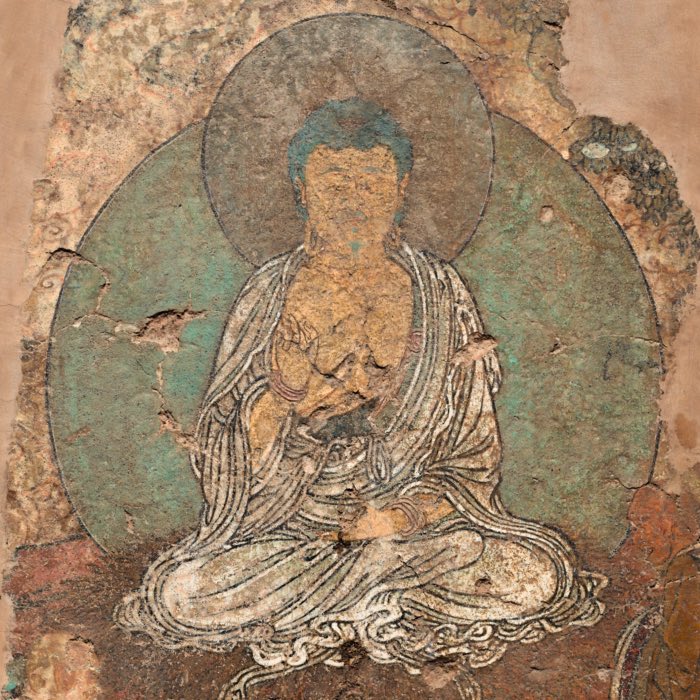
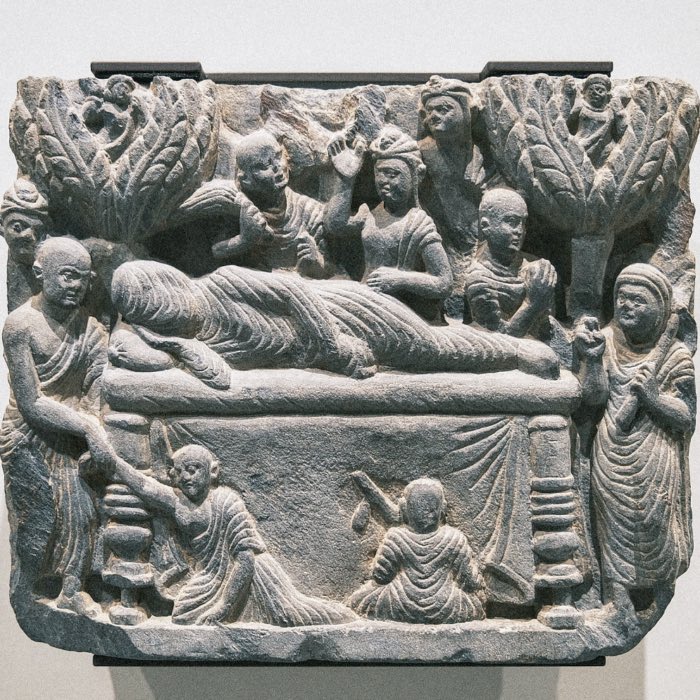
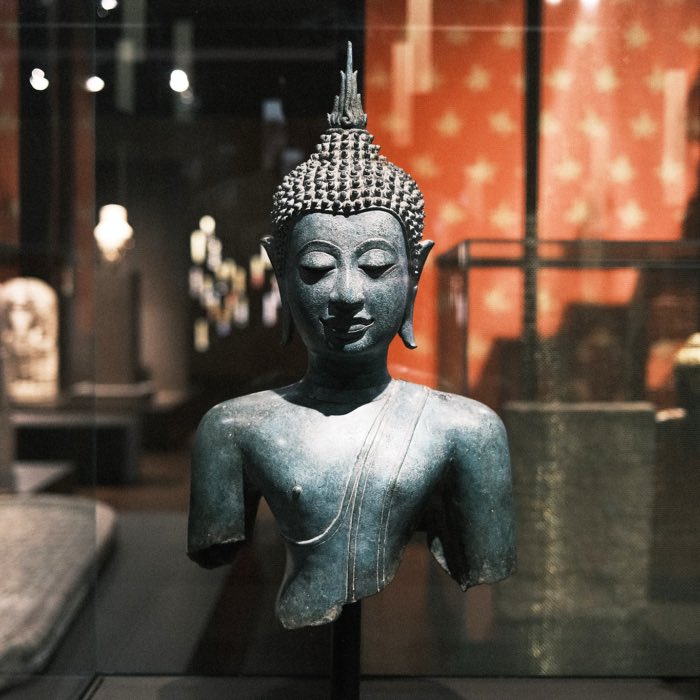
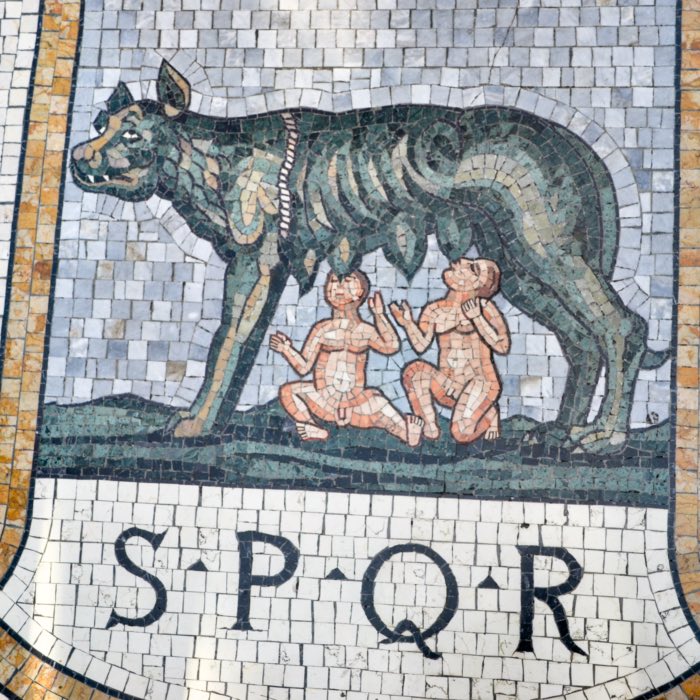
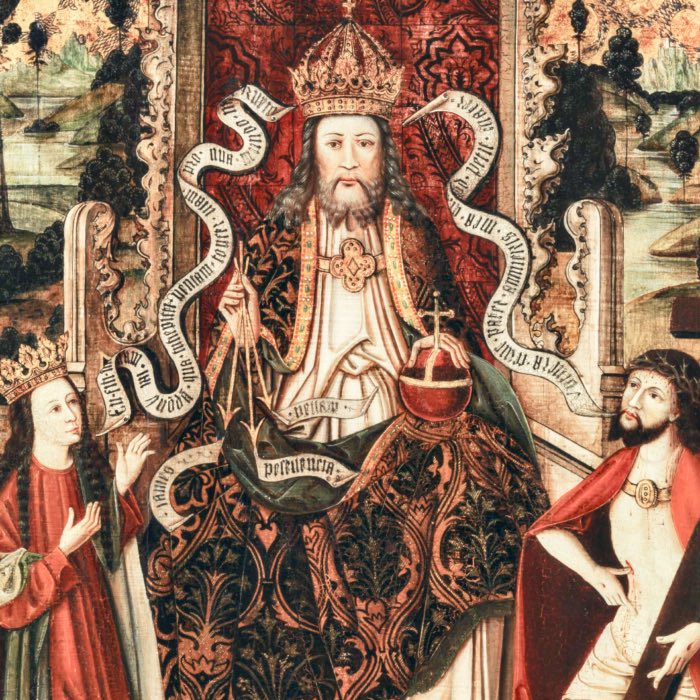
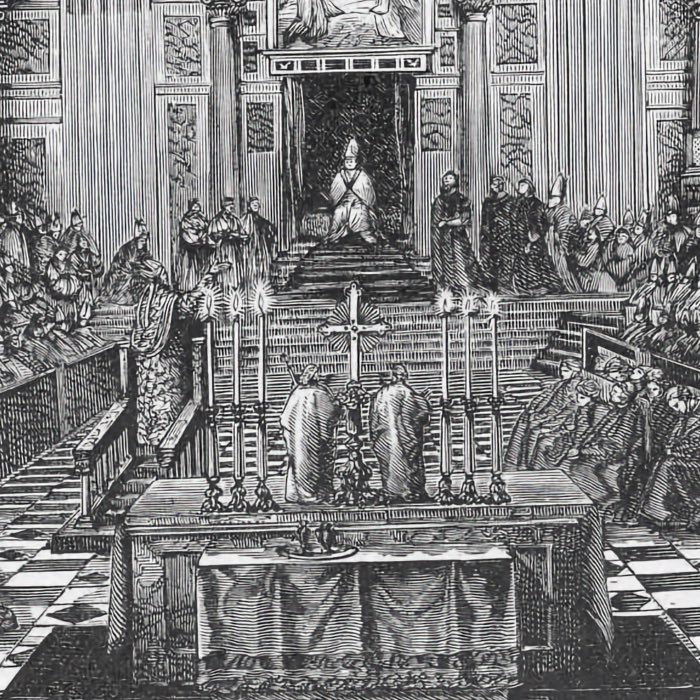
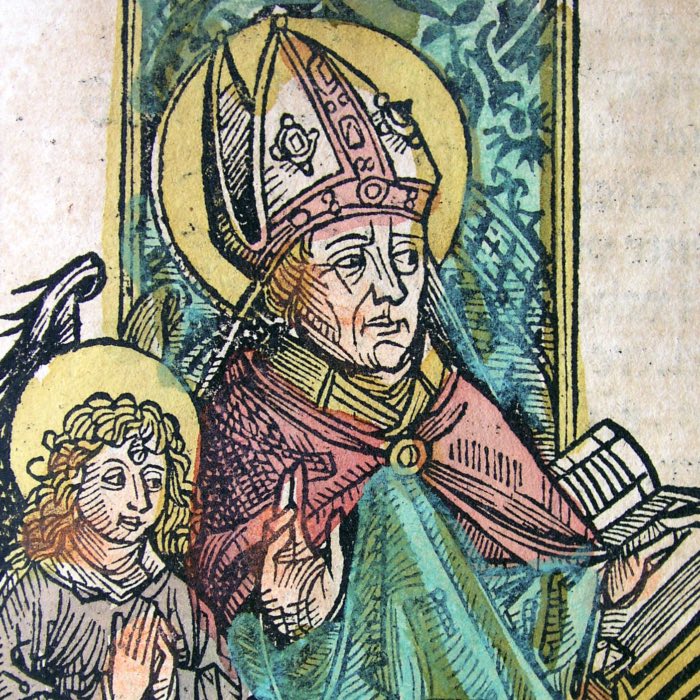
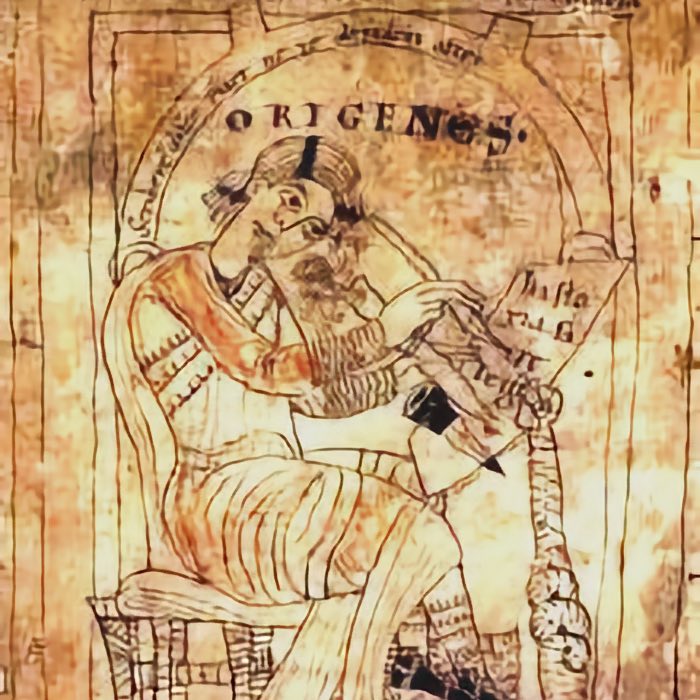
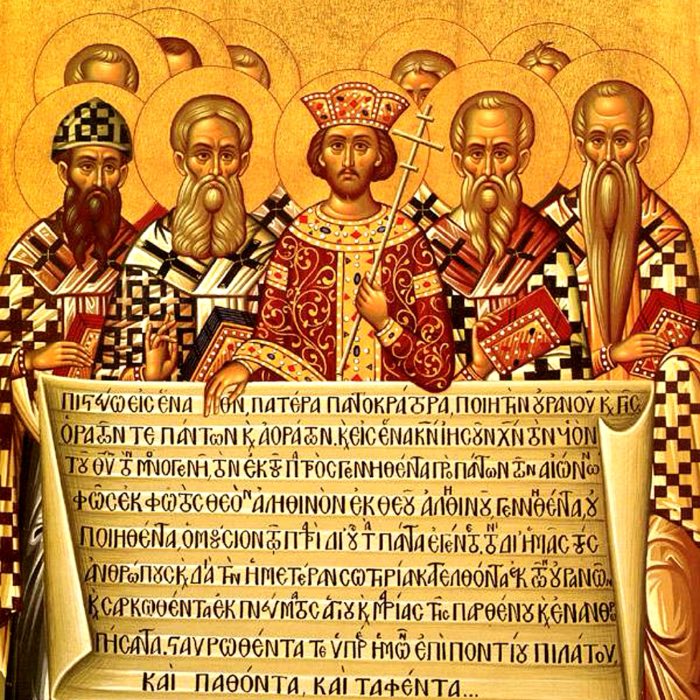

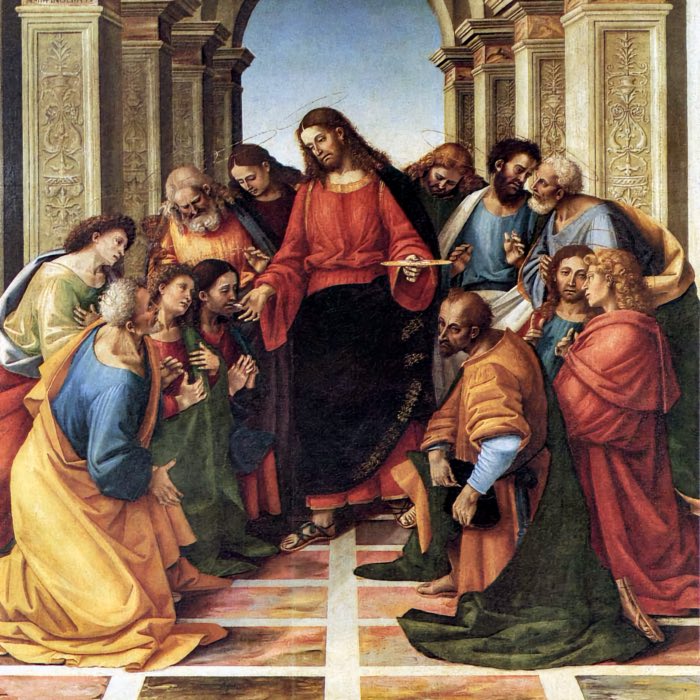
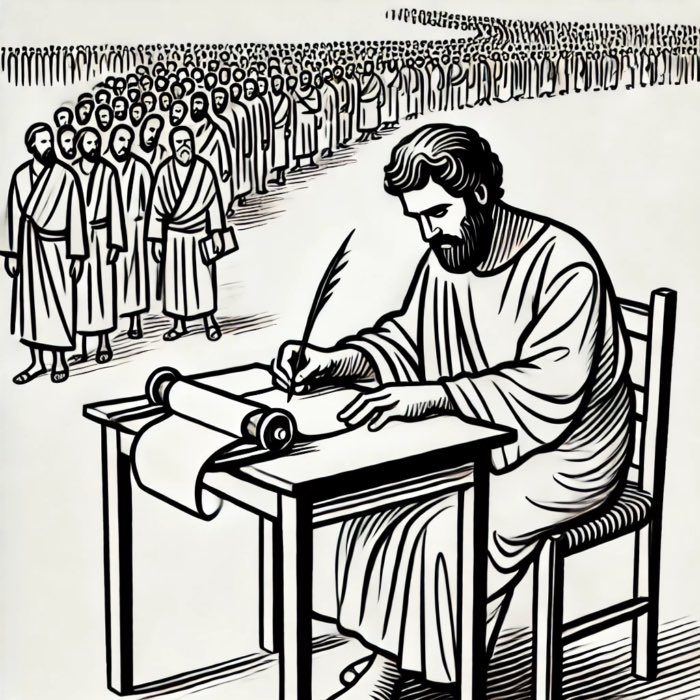
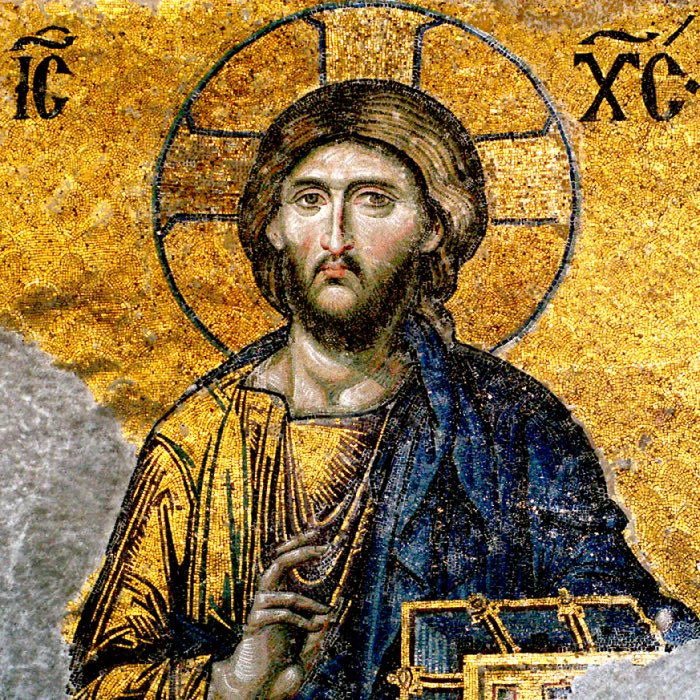
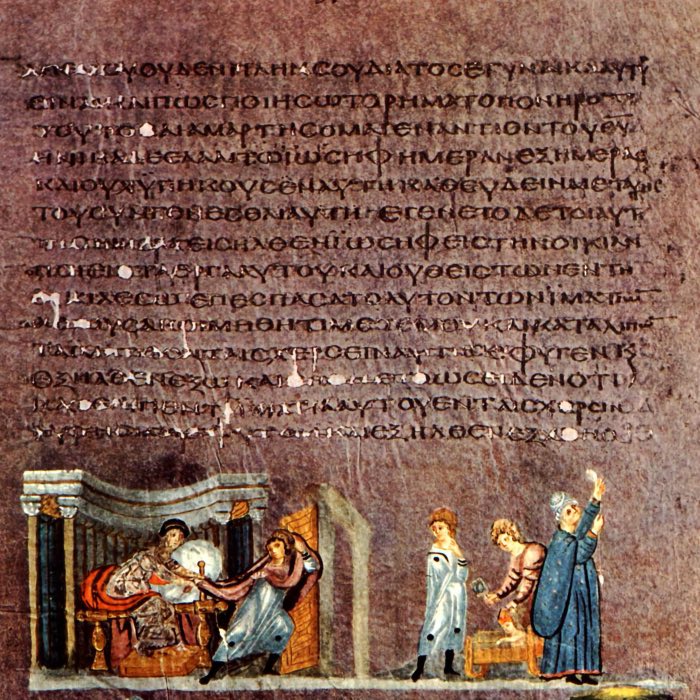
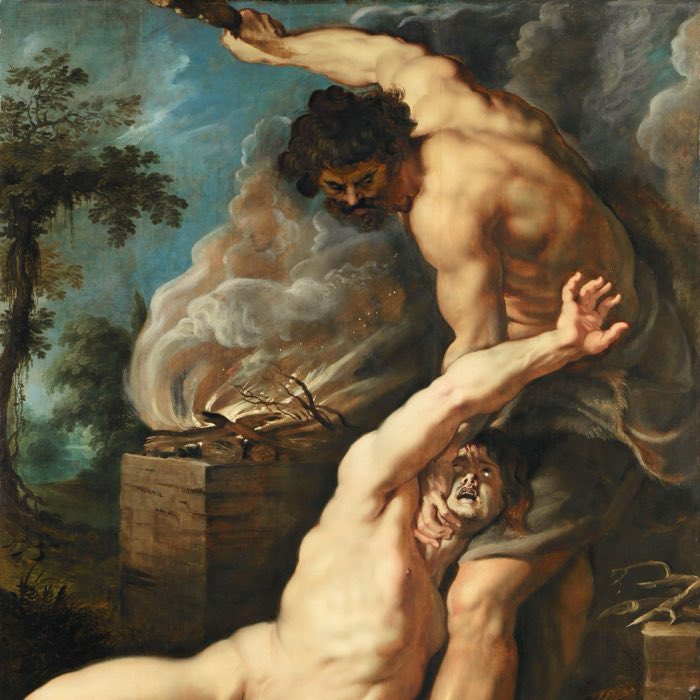
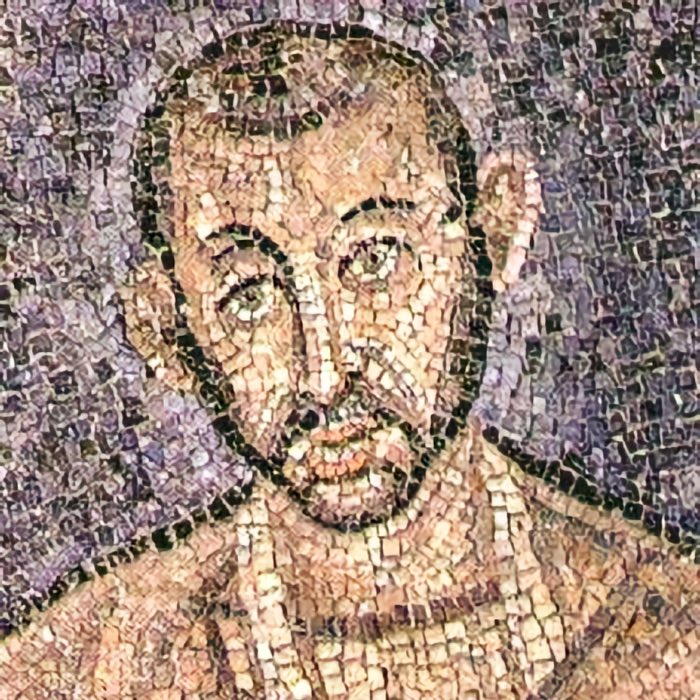
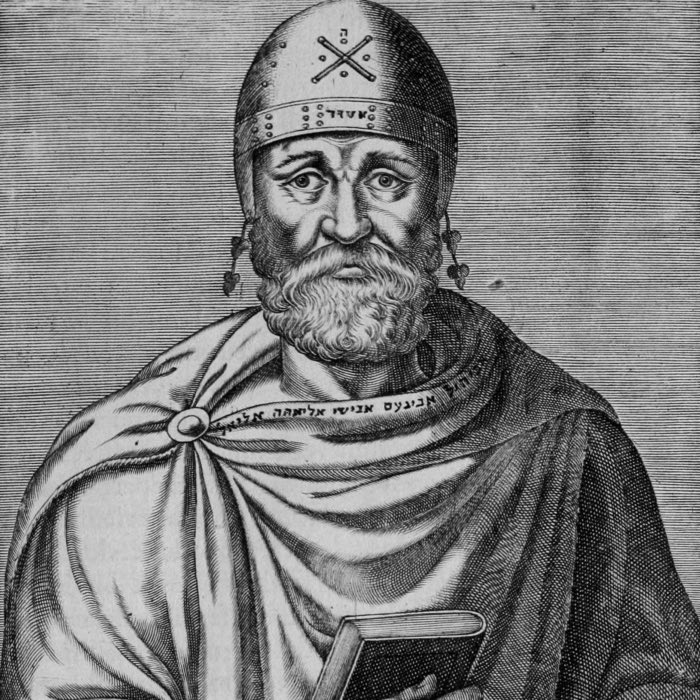
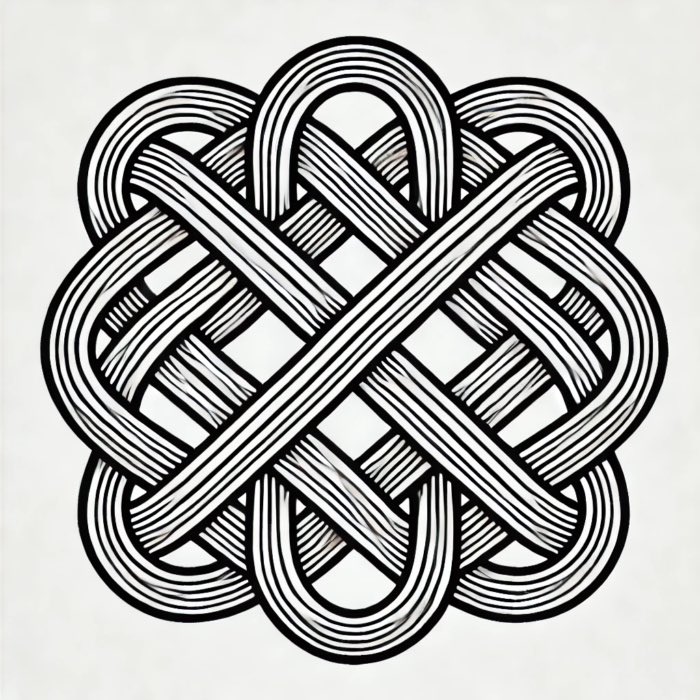



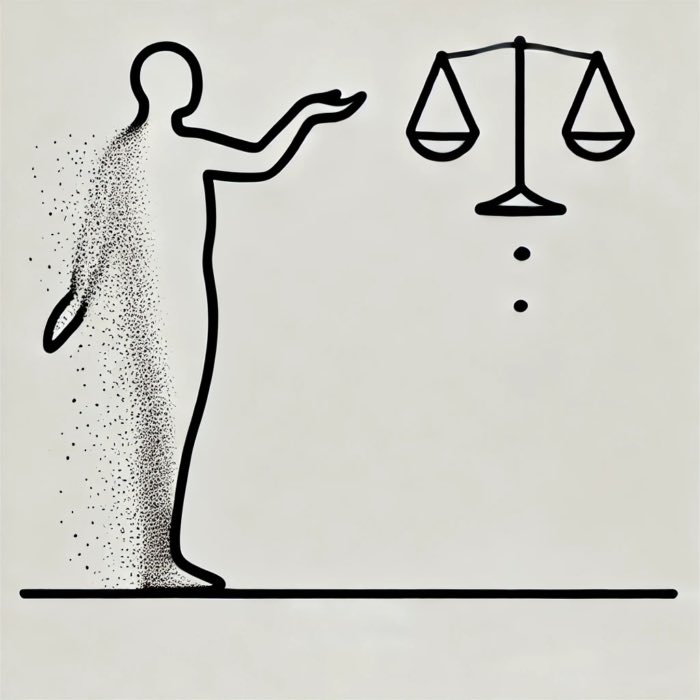
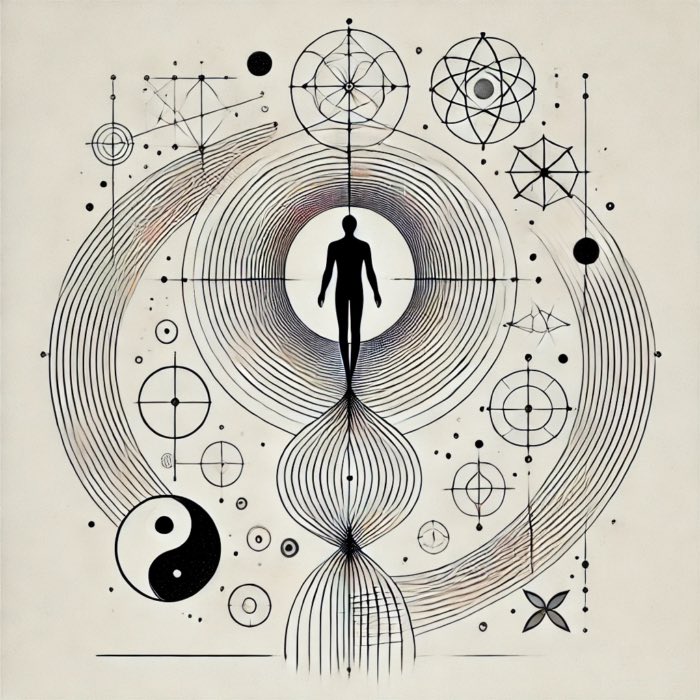


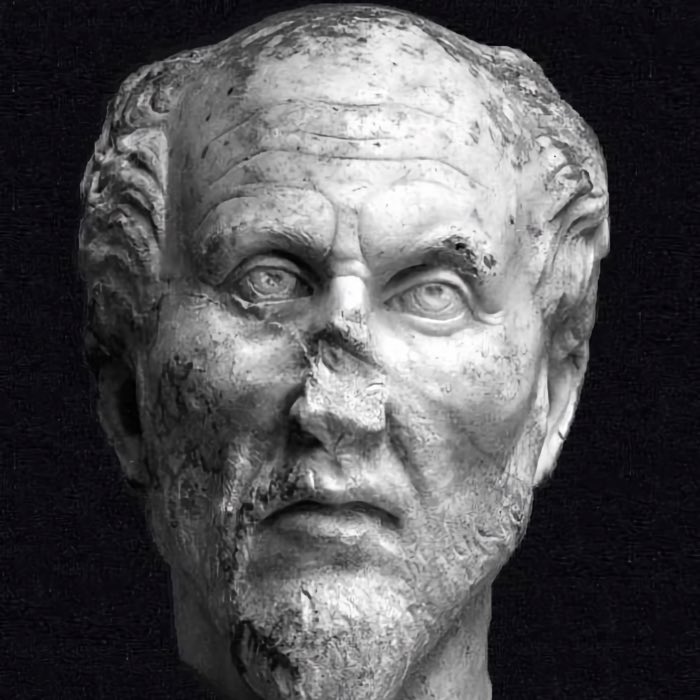
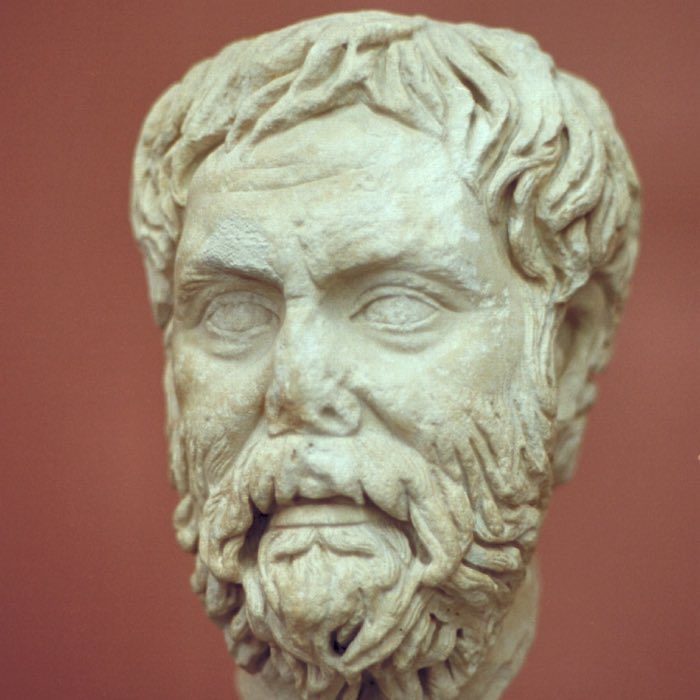
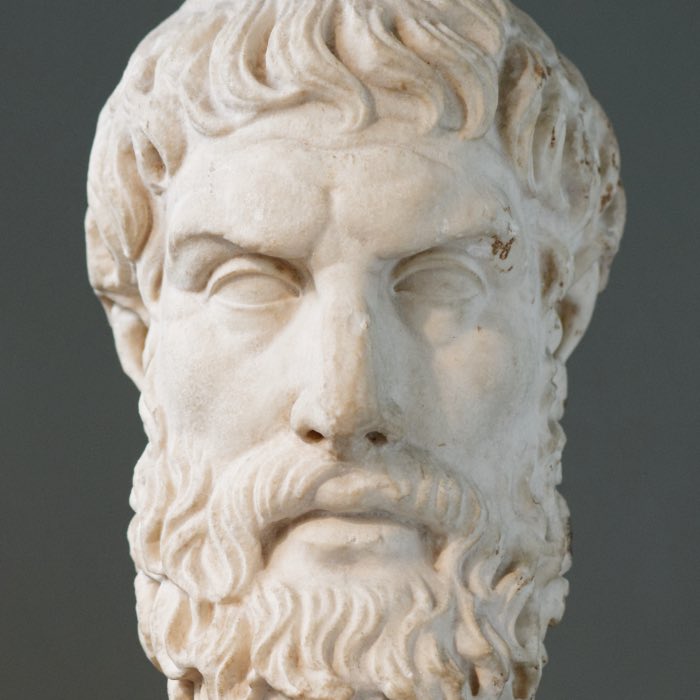
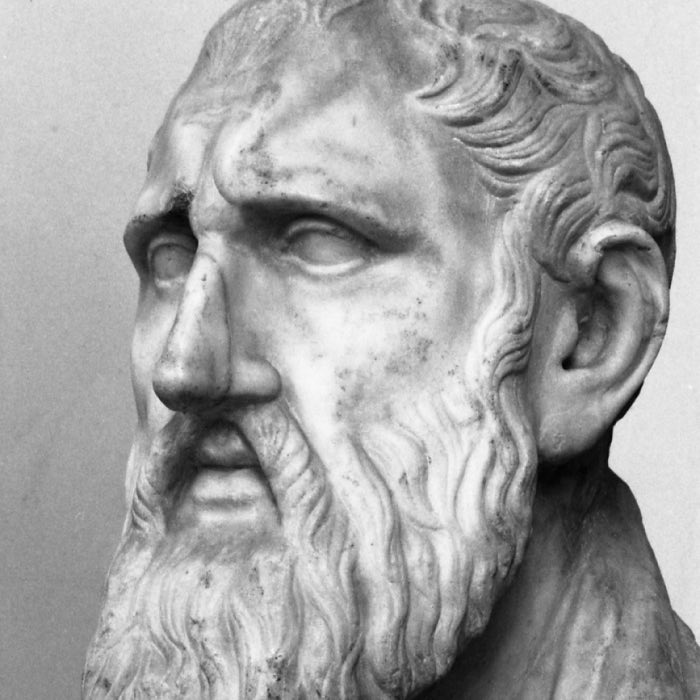
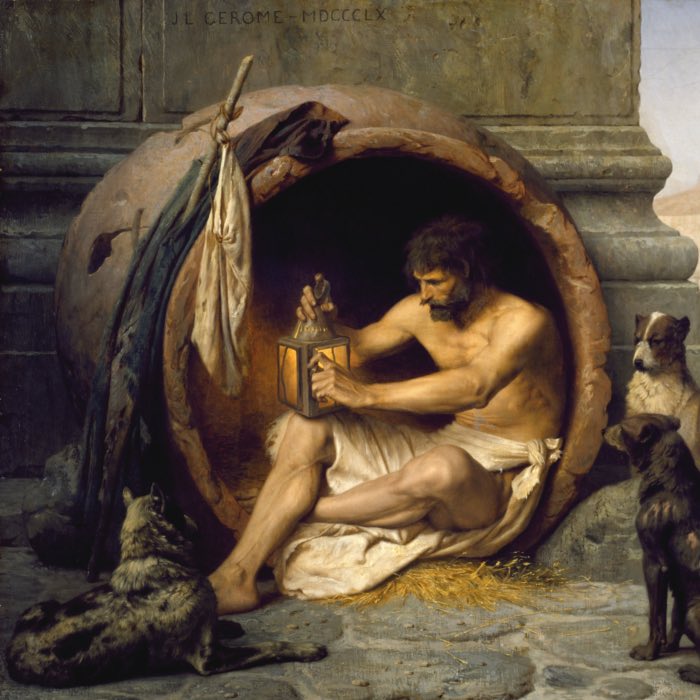
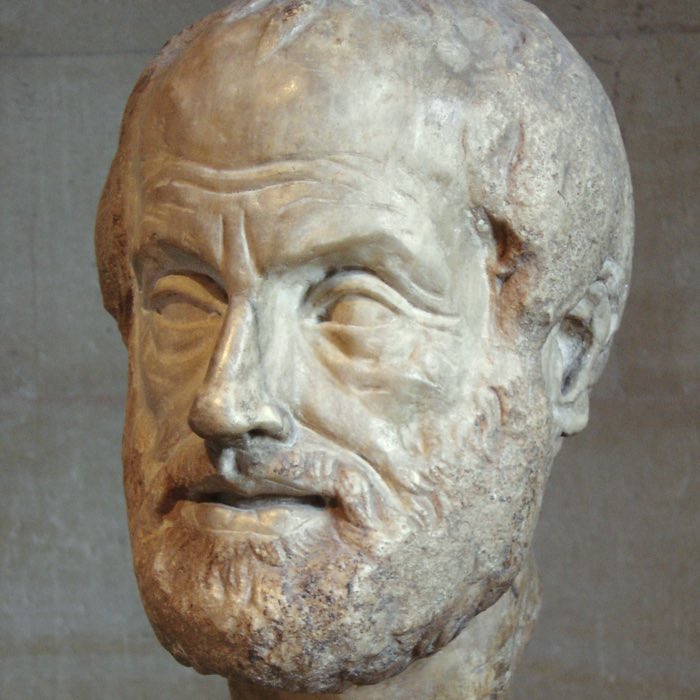
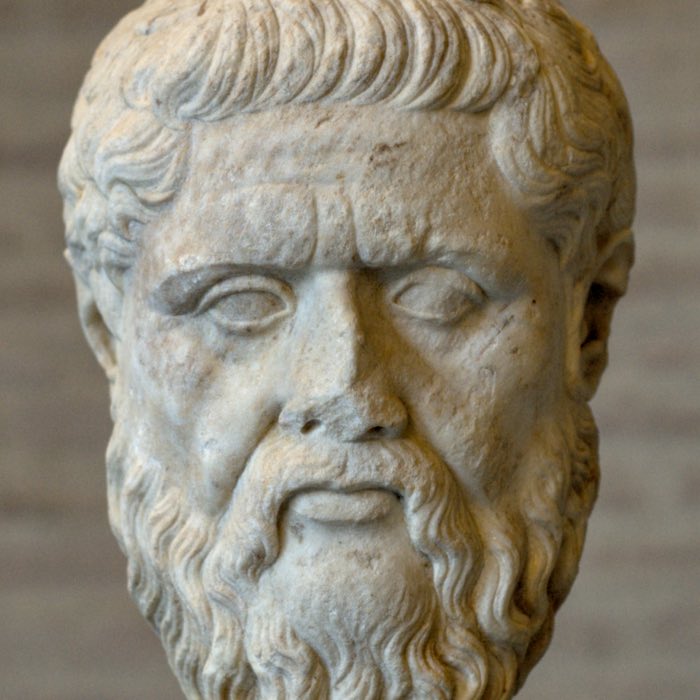
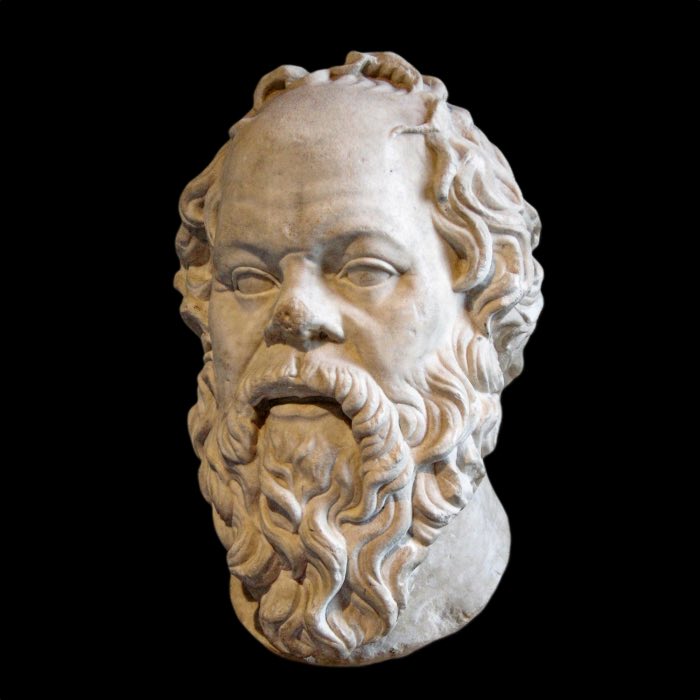
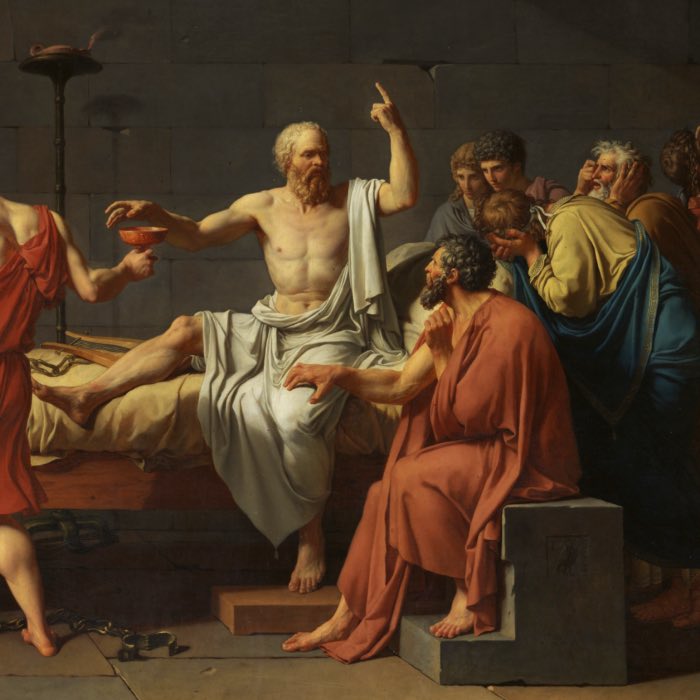
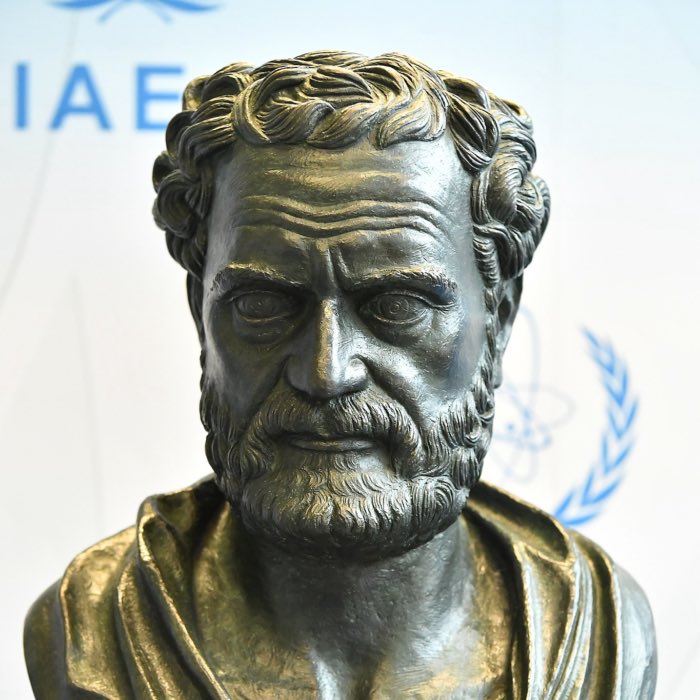
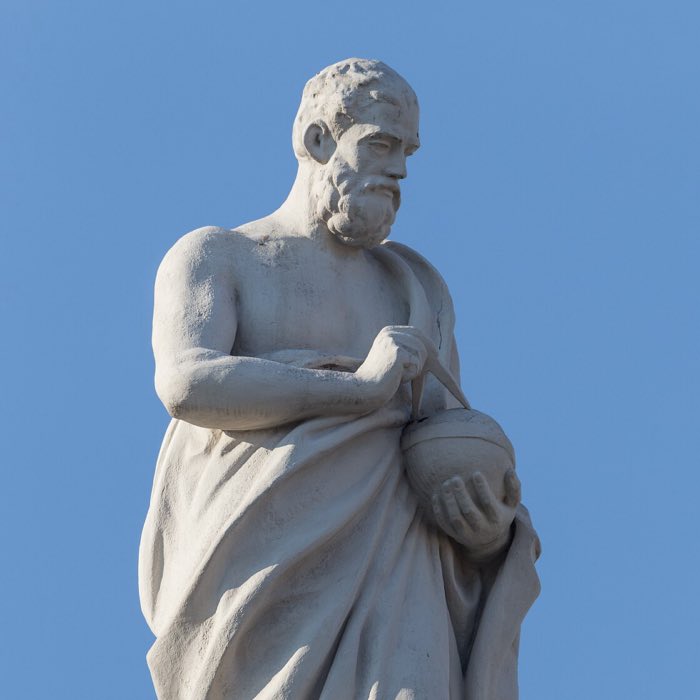
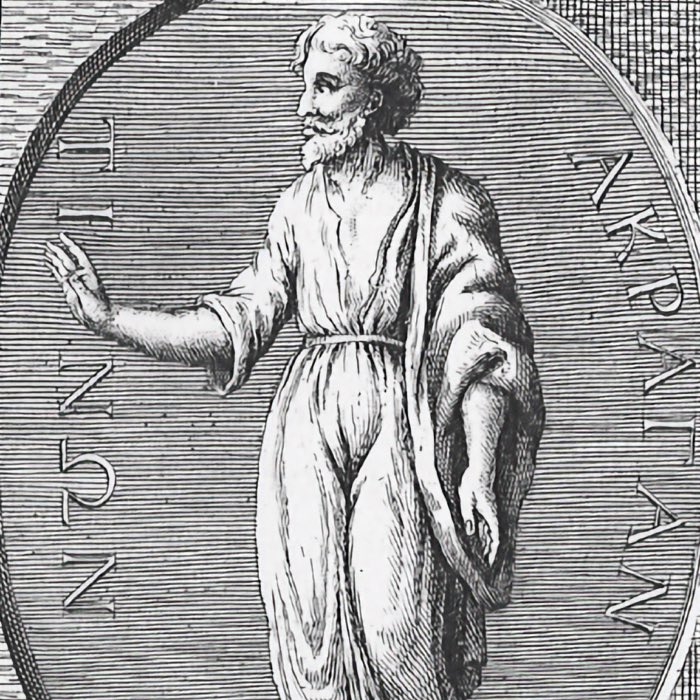
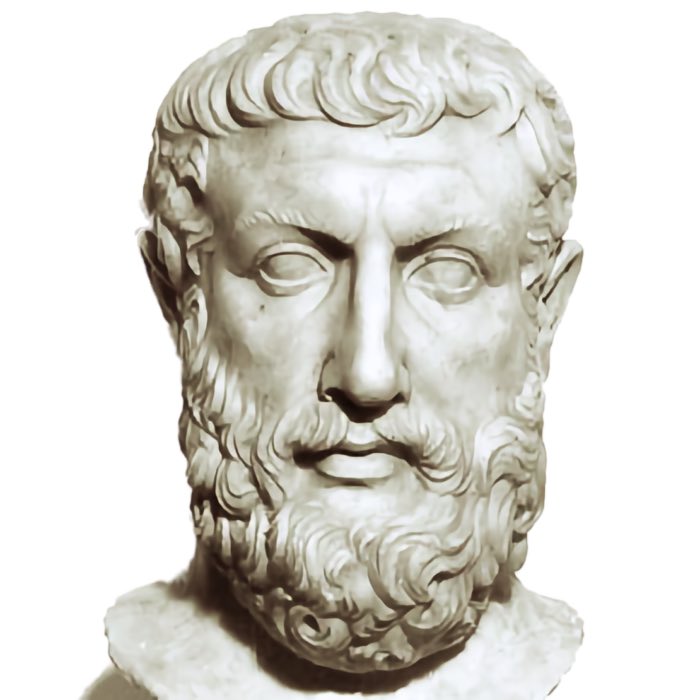
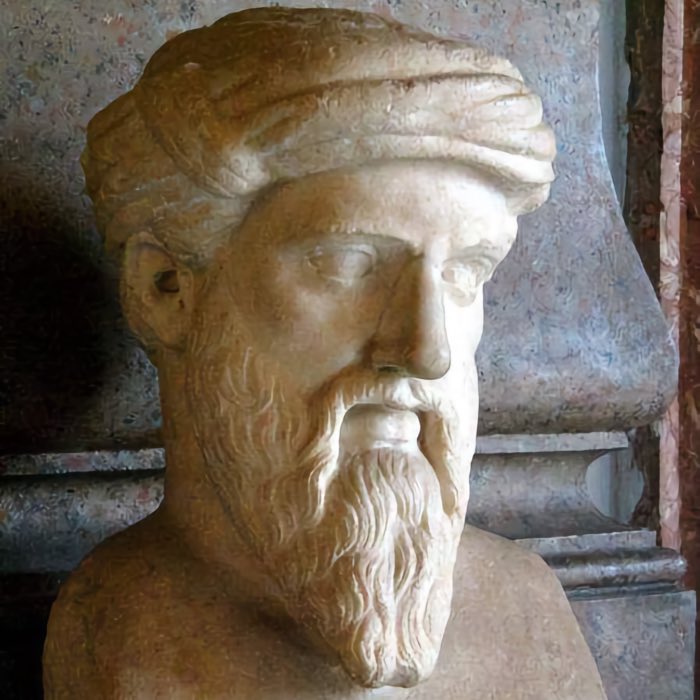
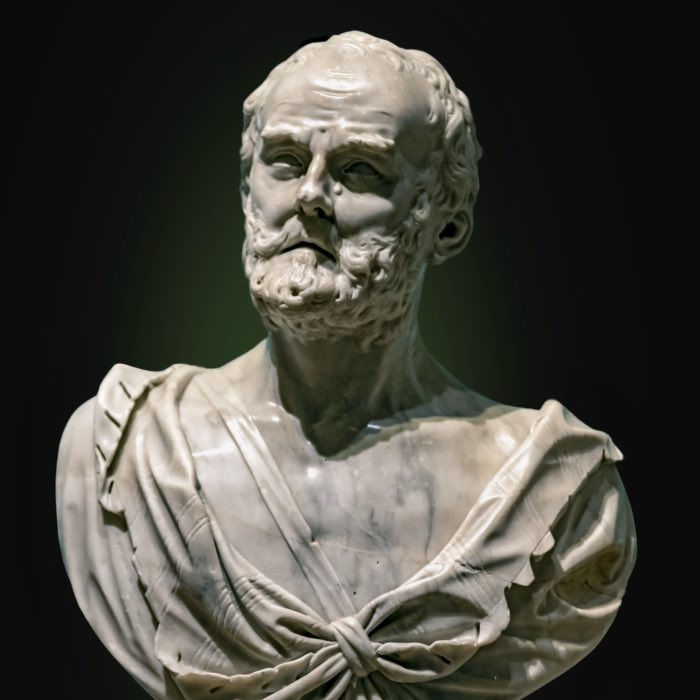
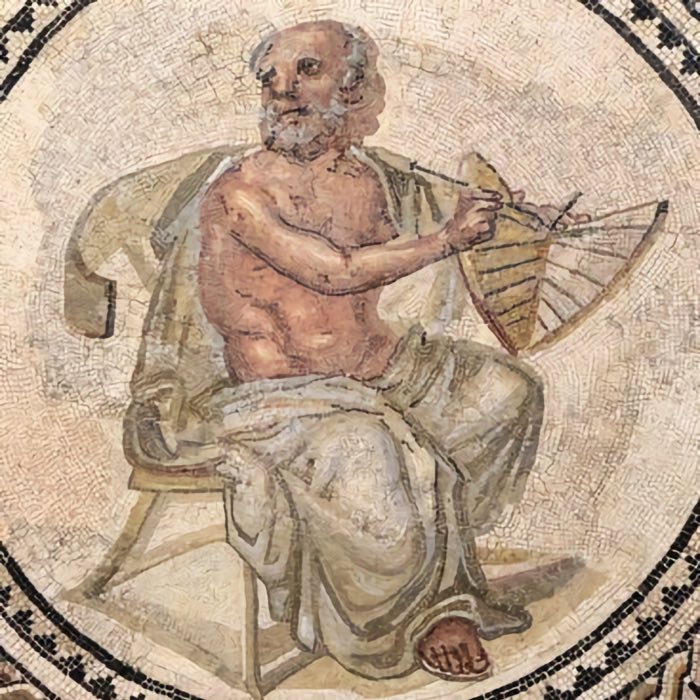
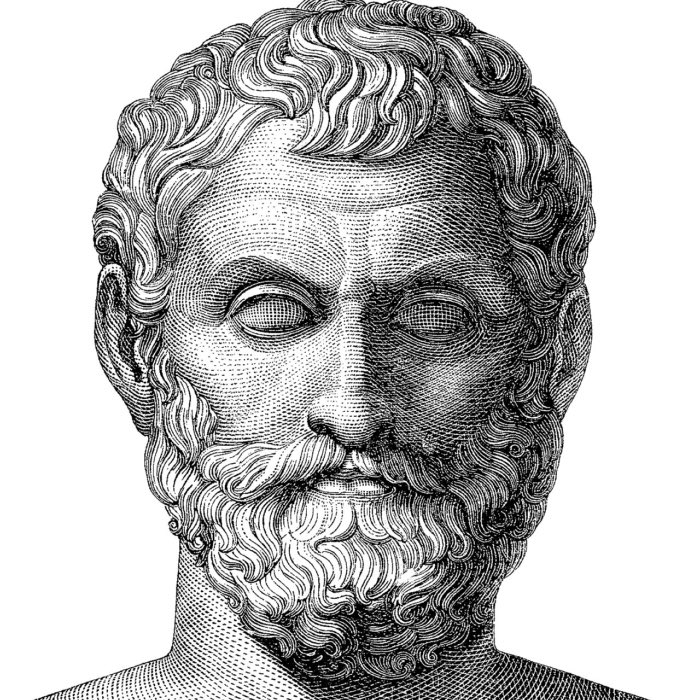
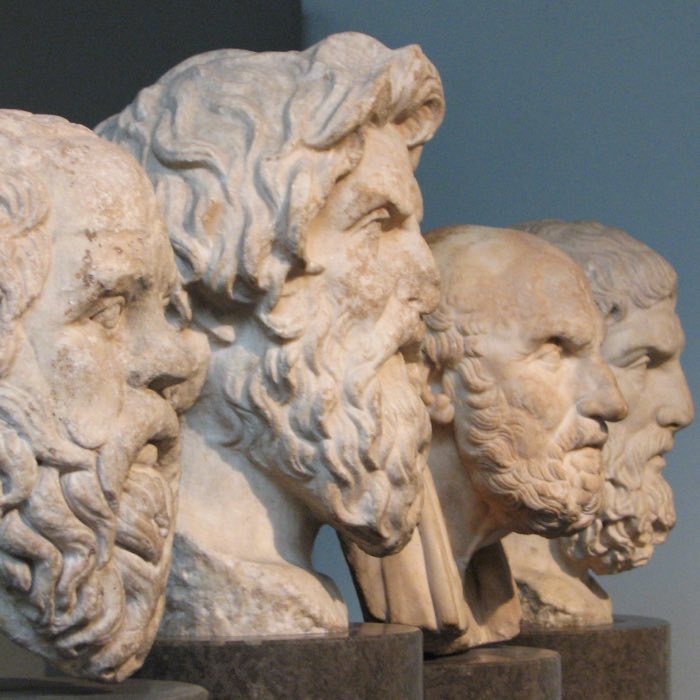







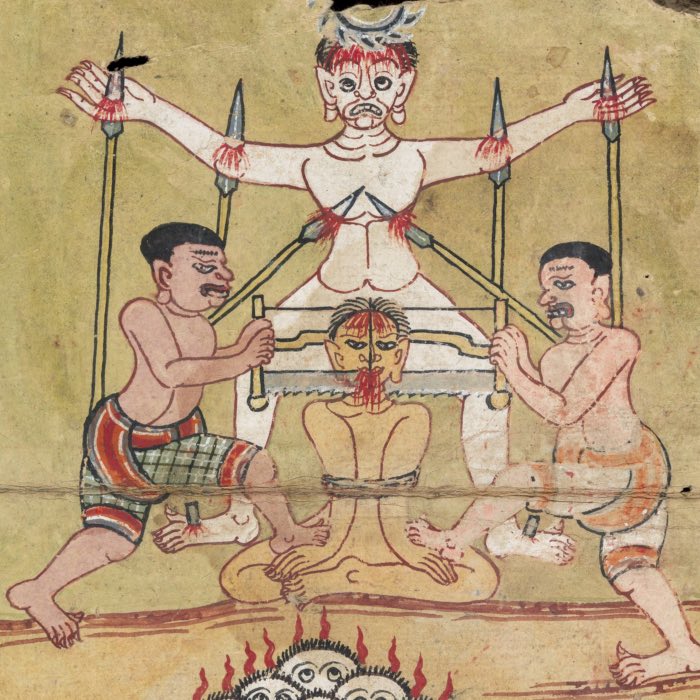
comments